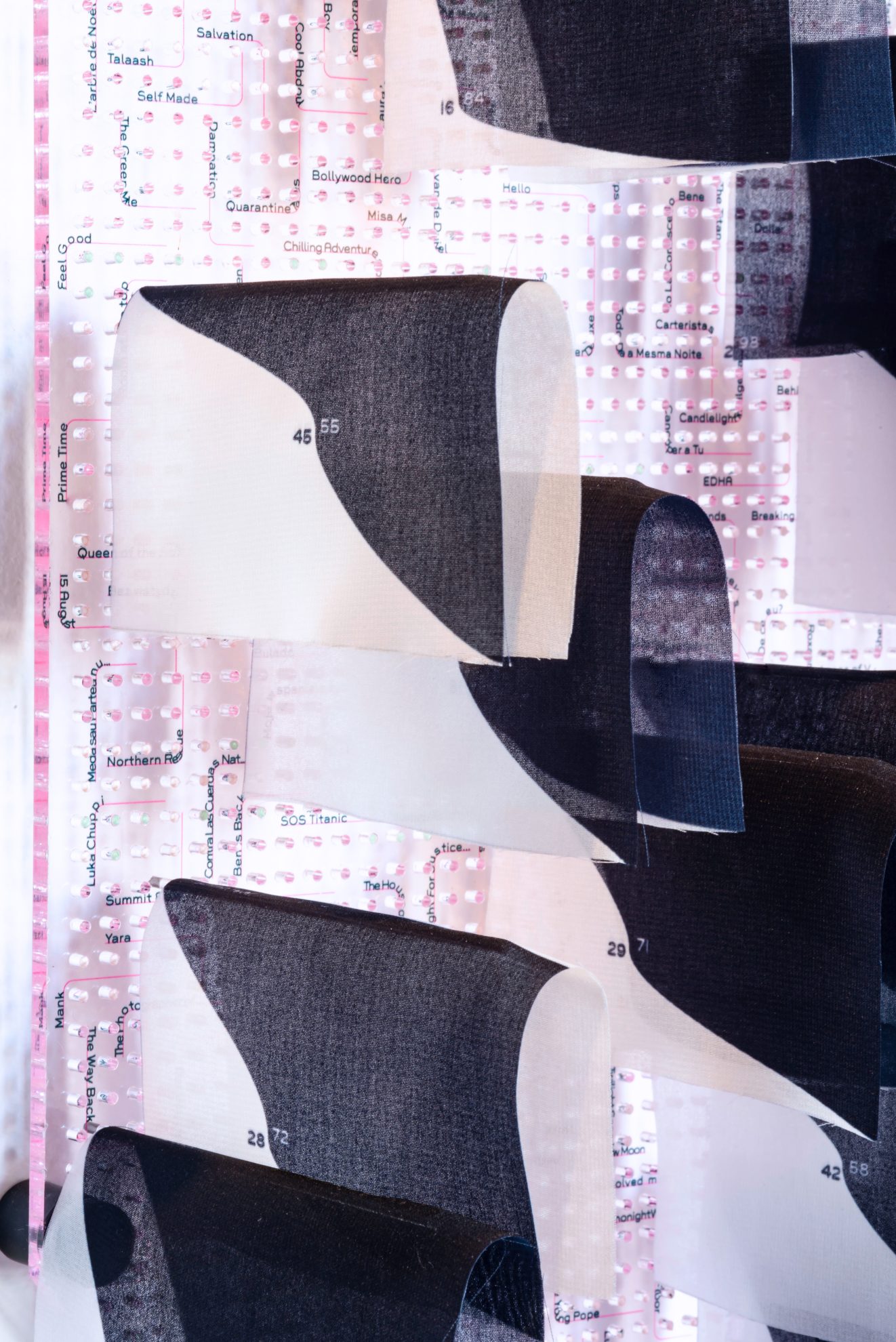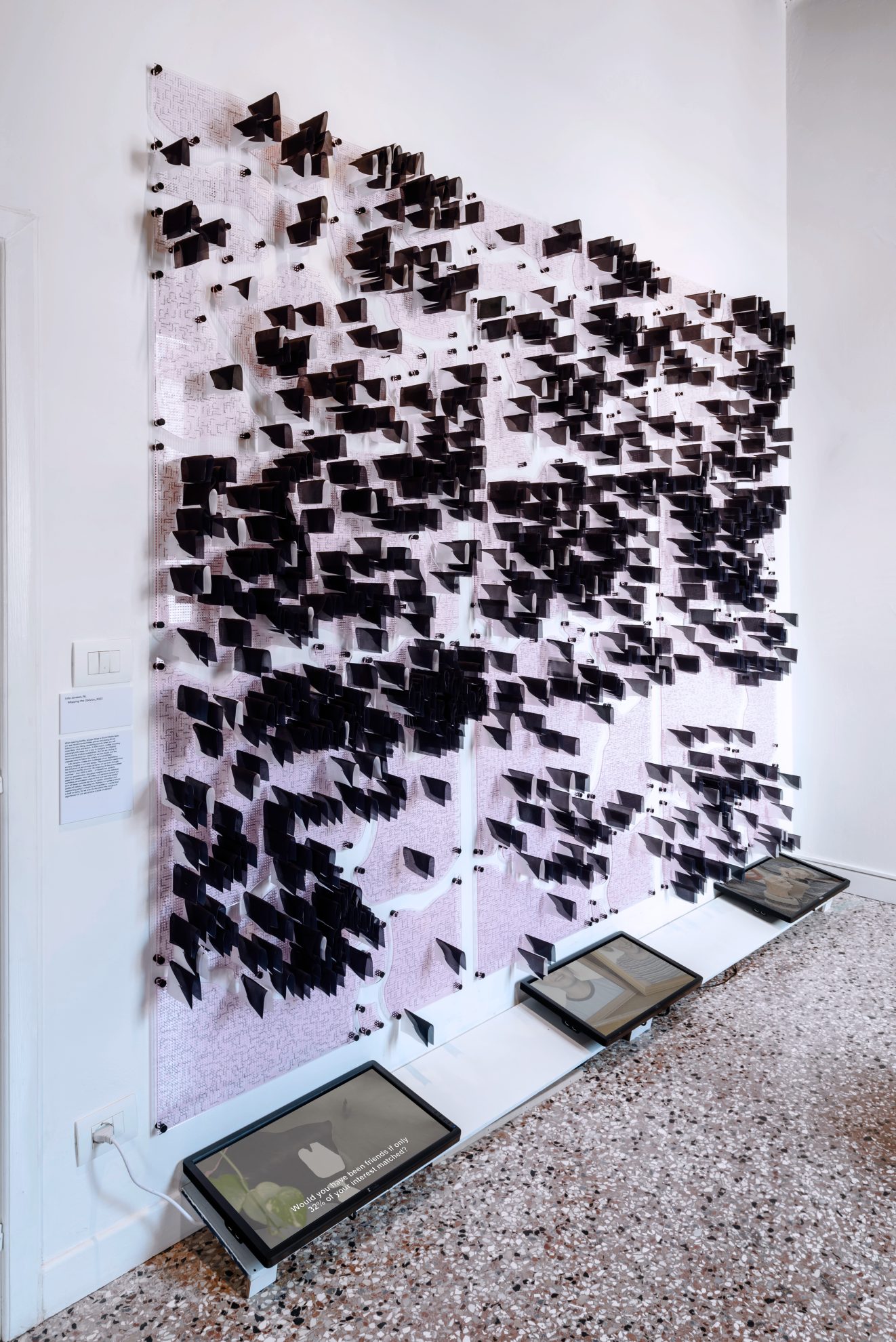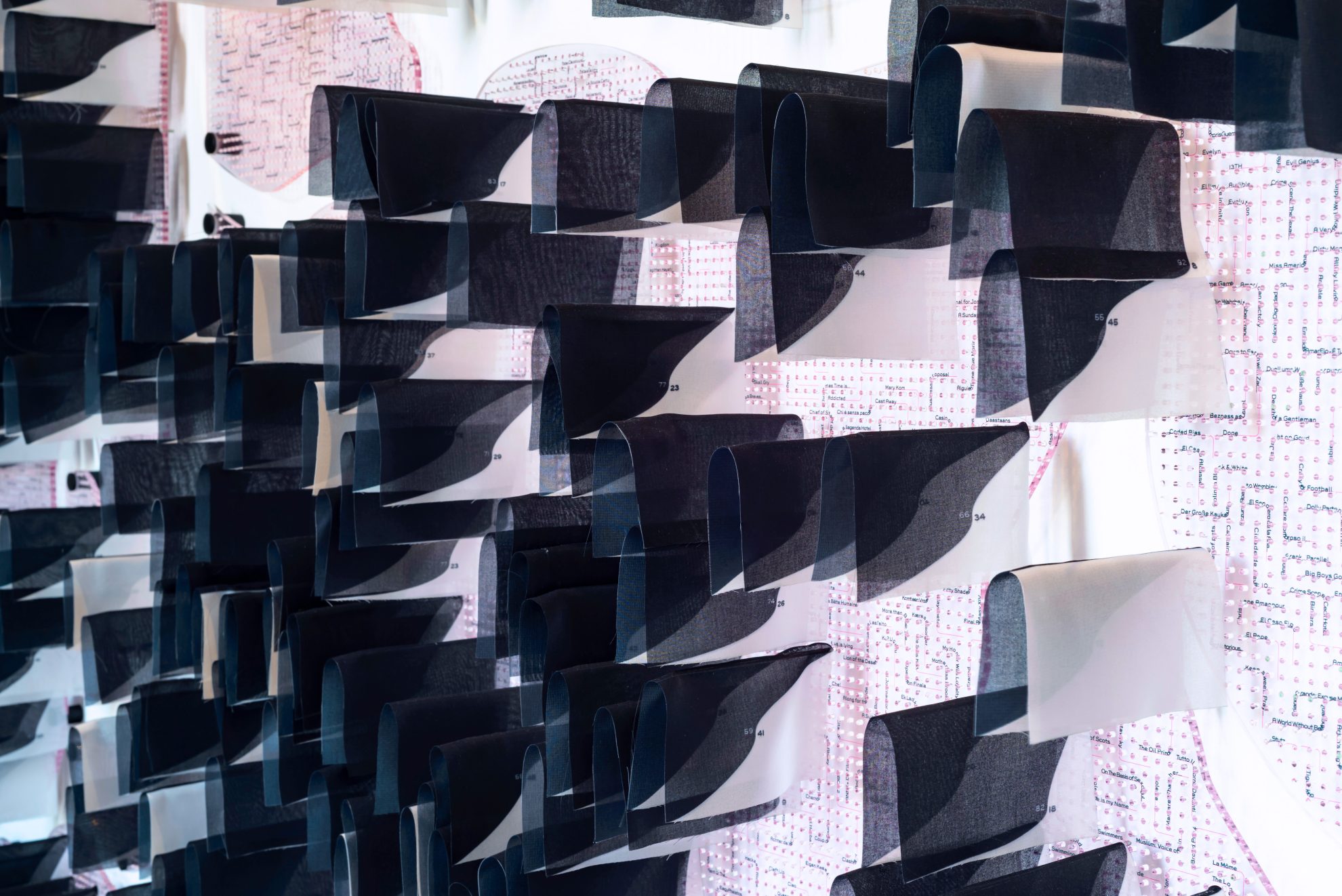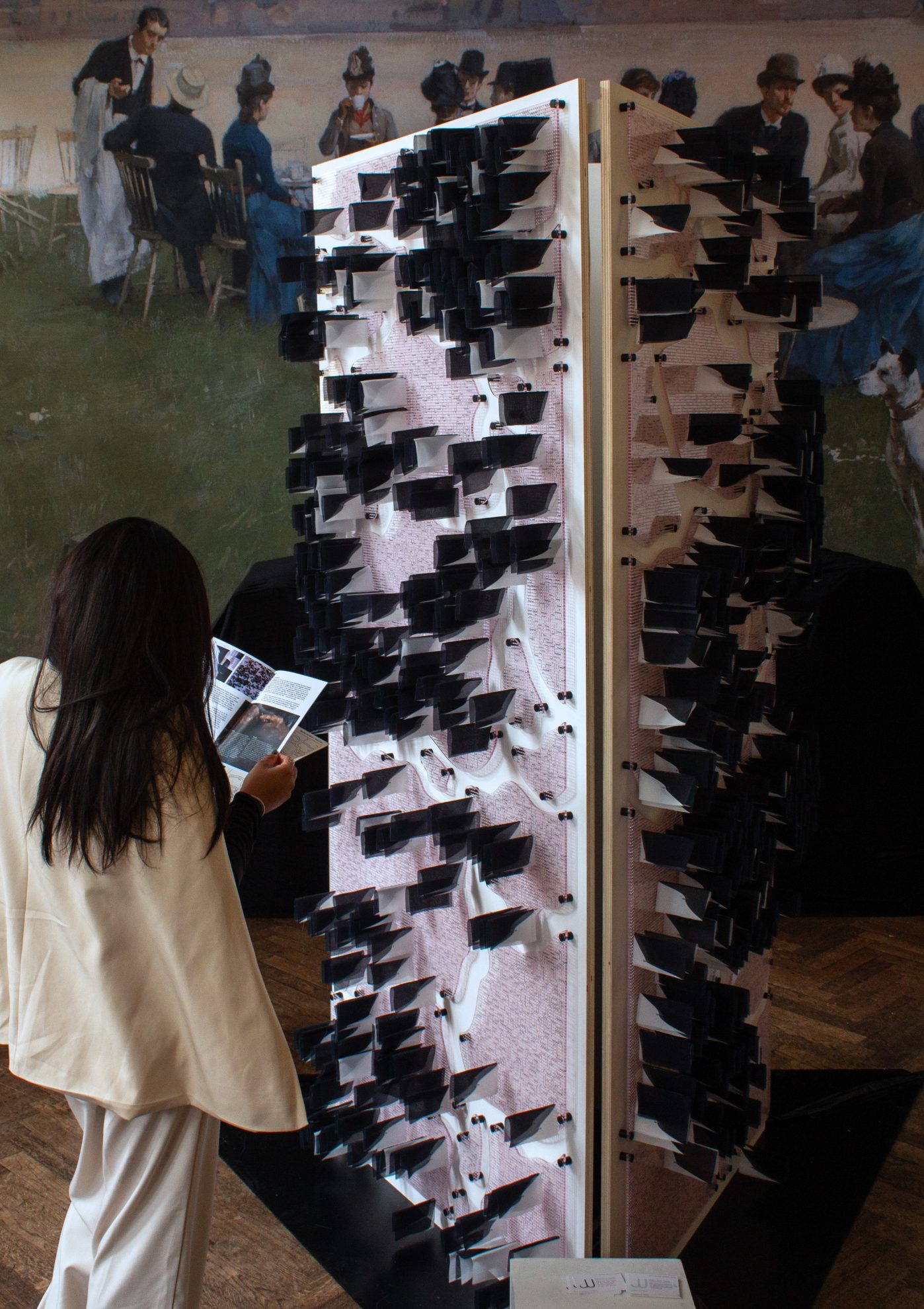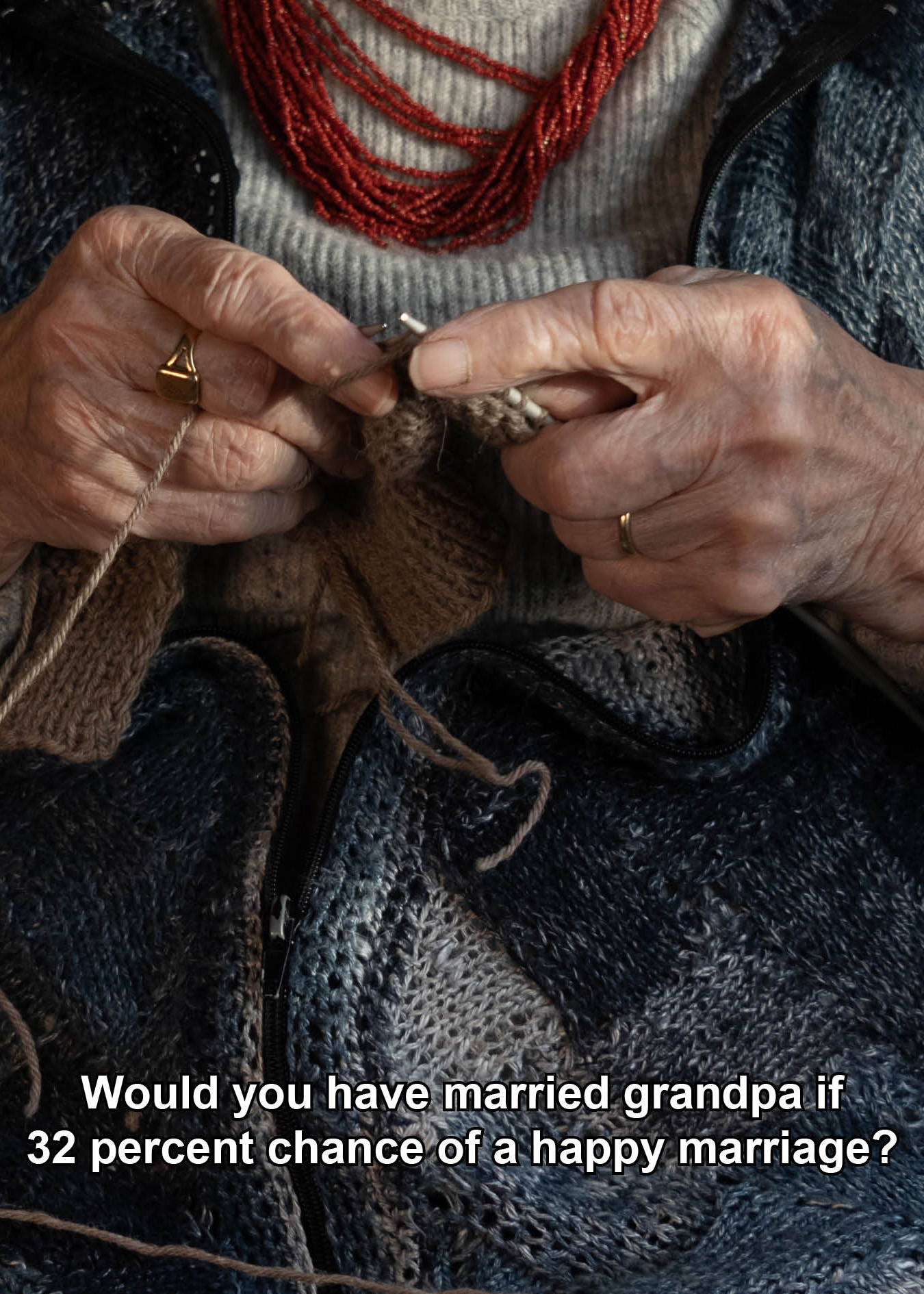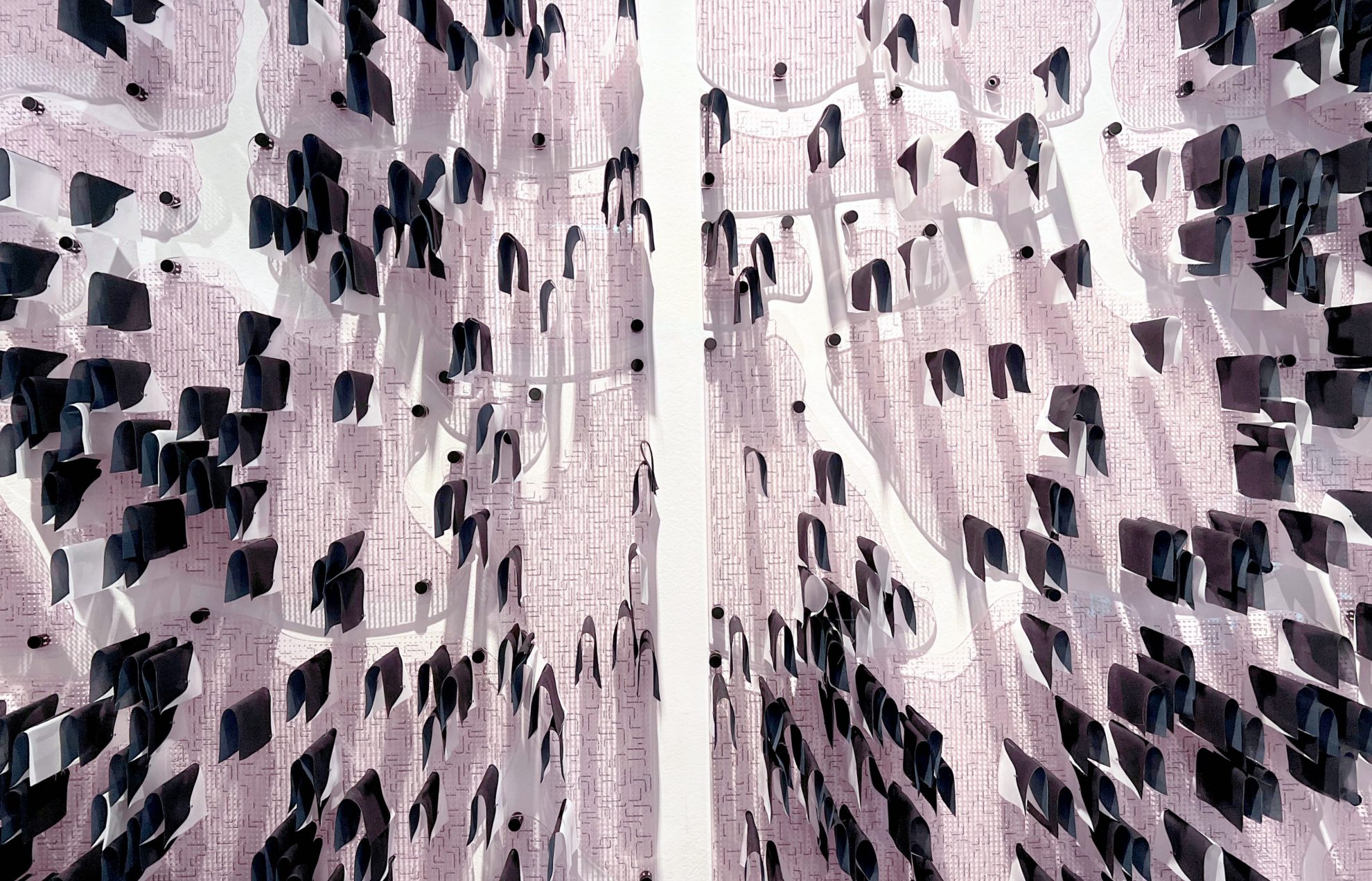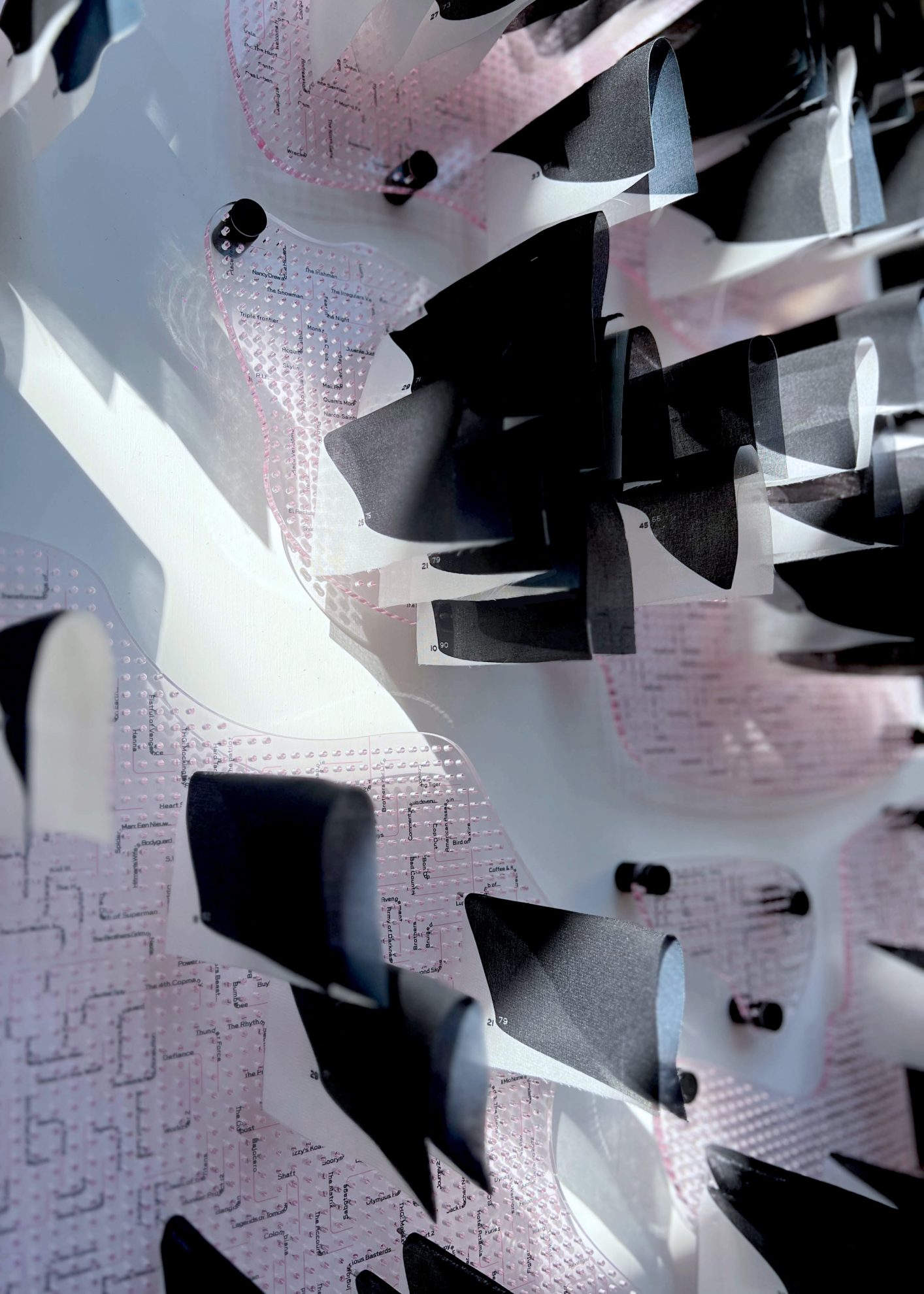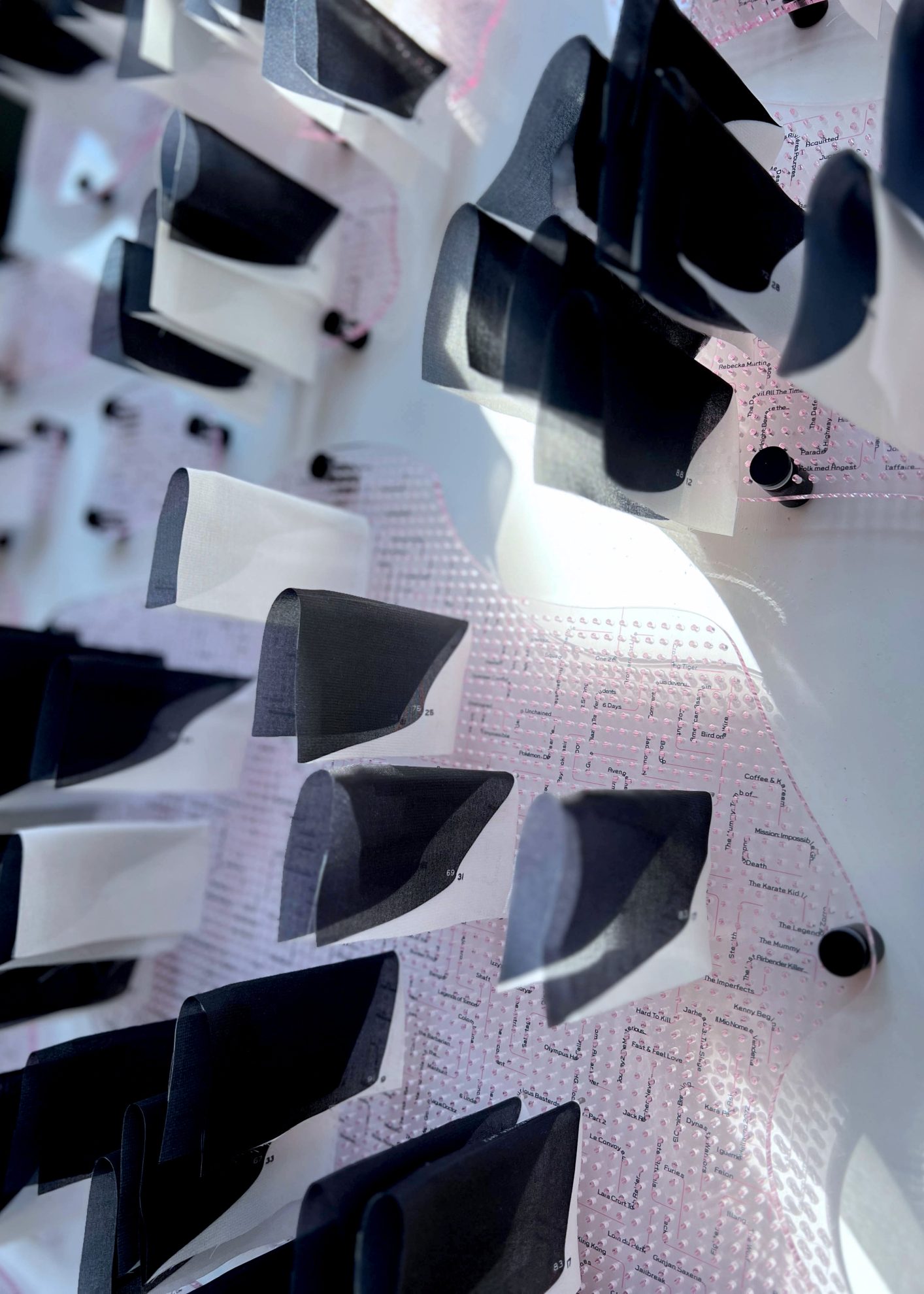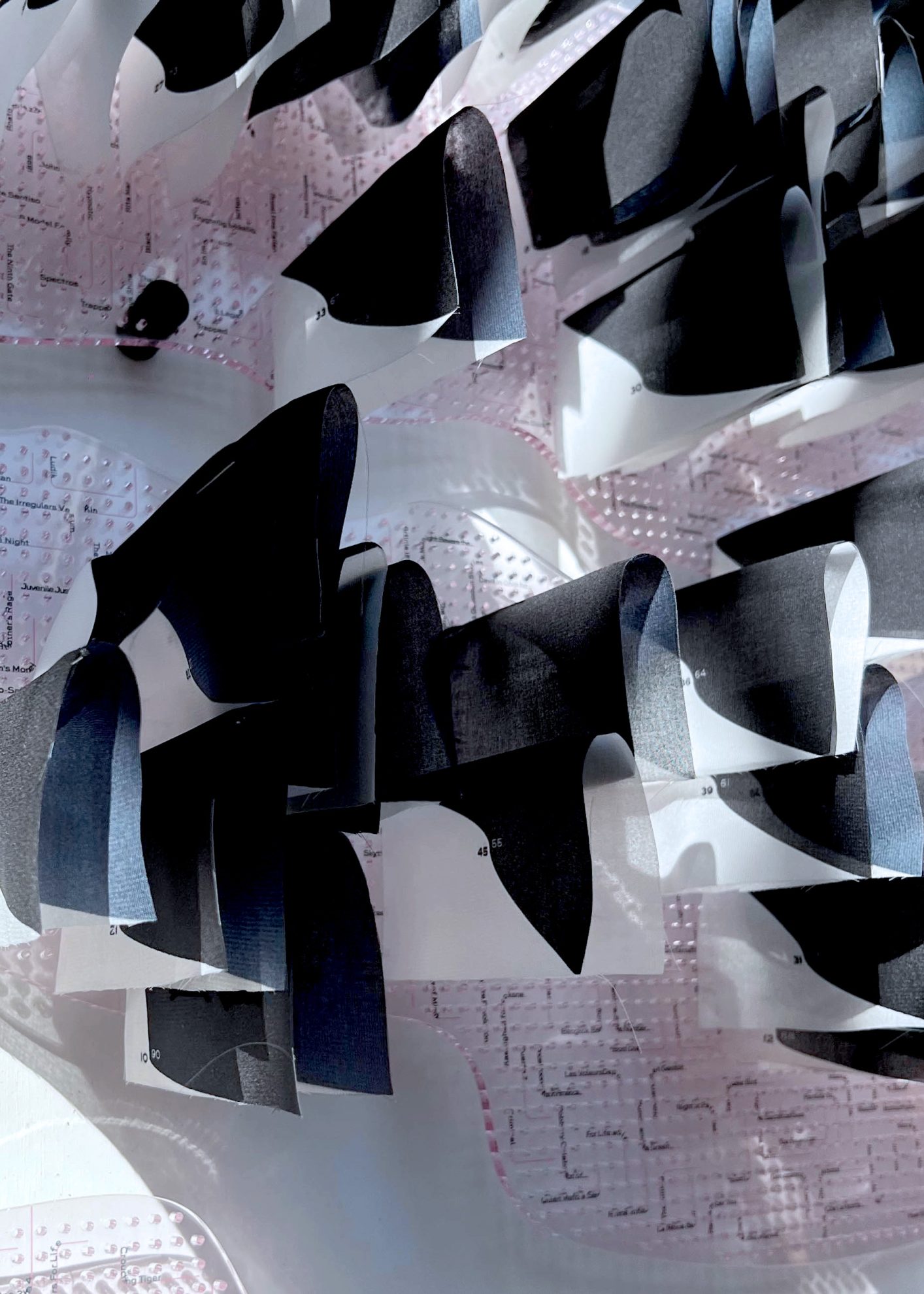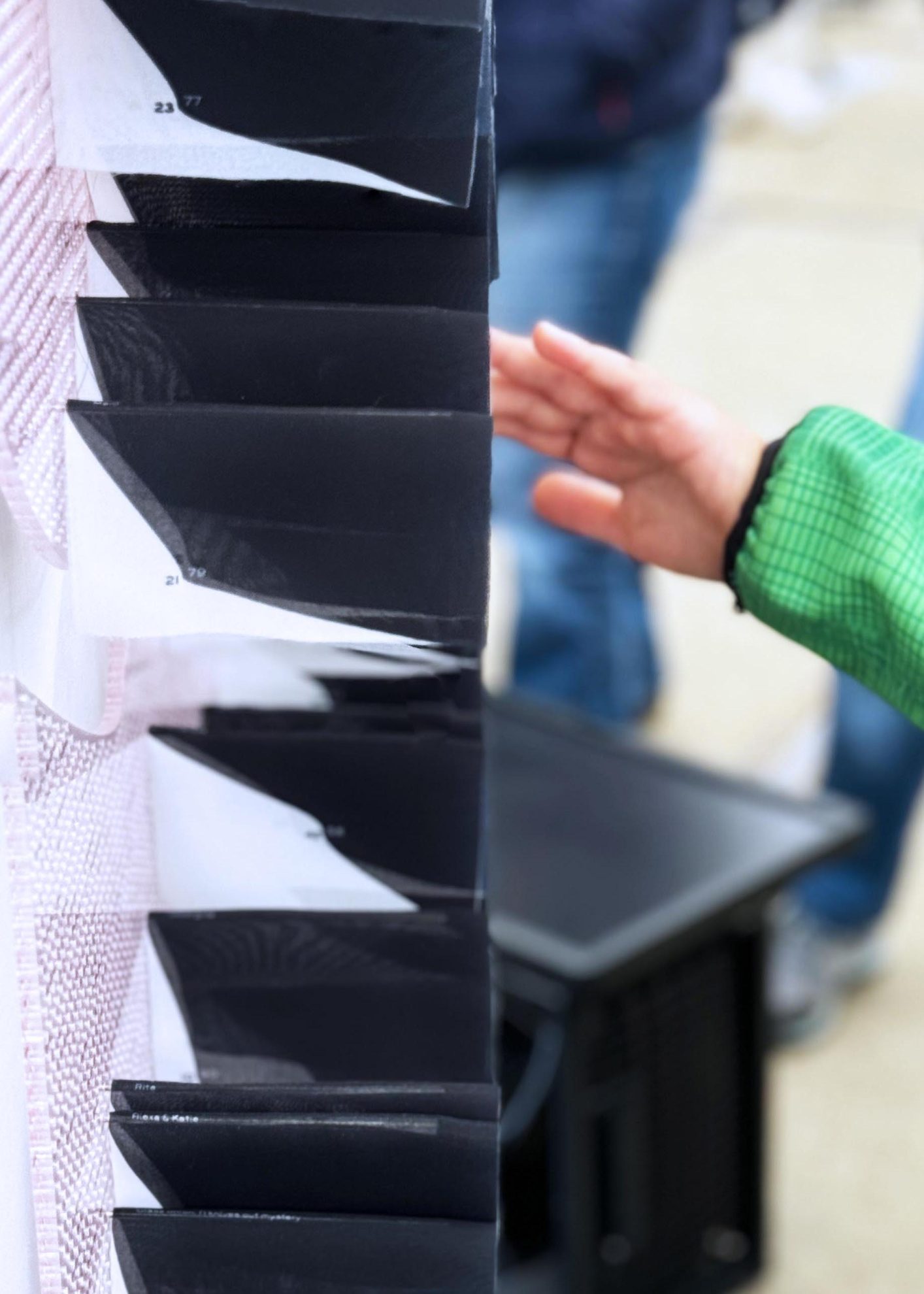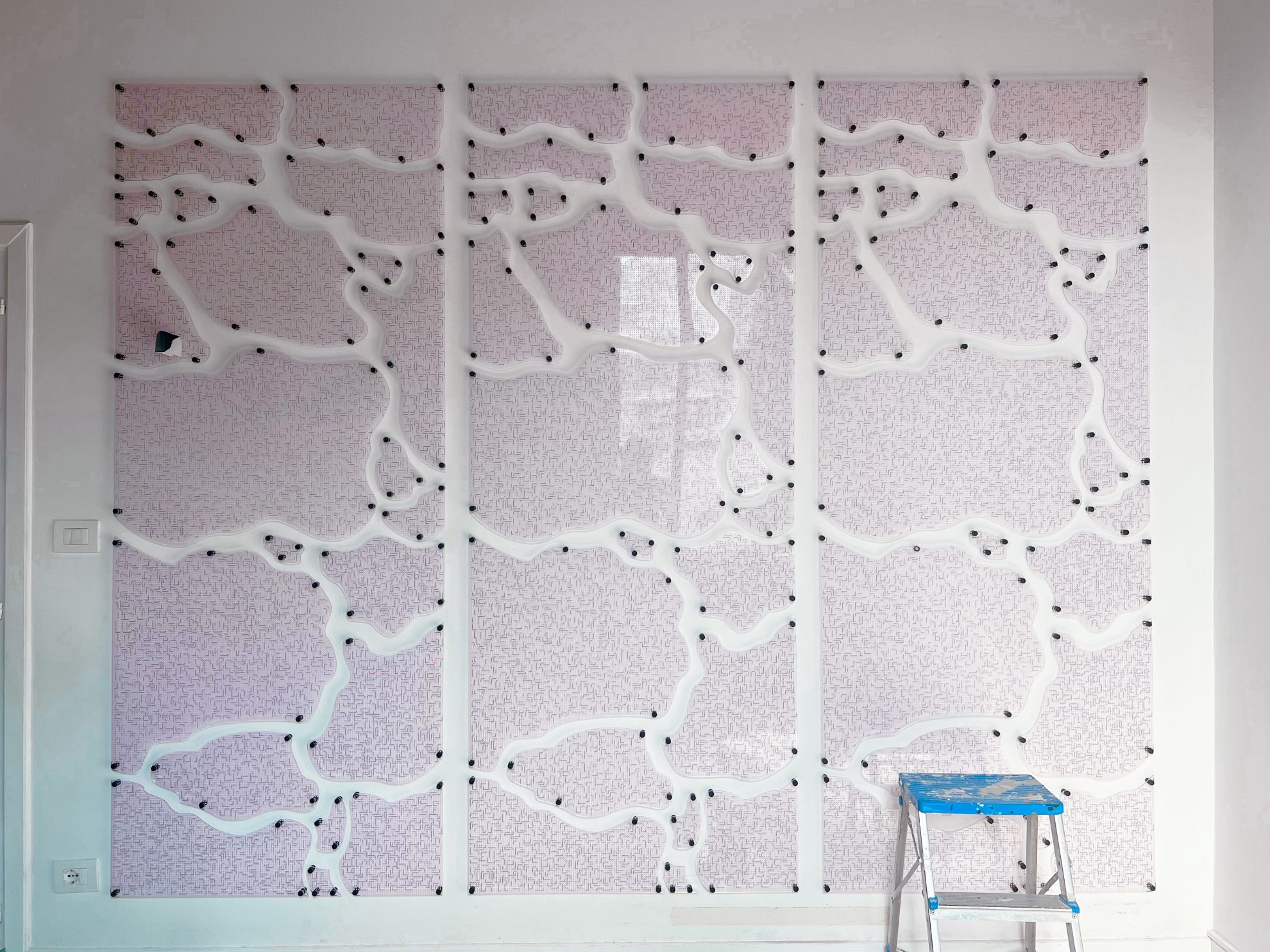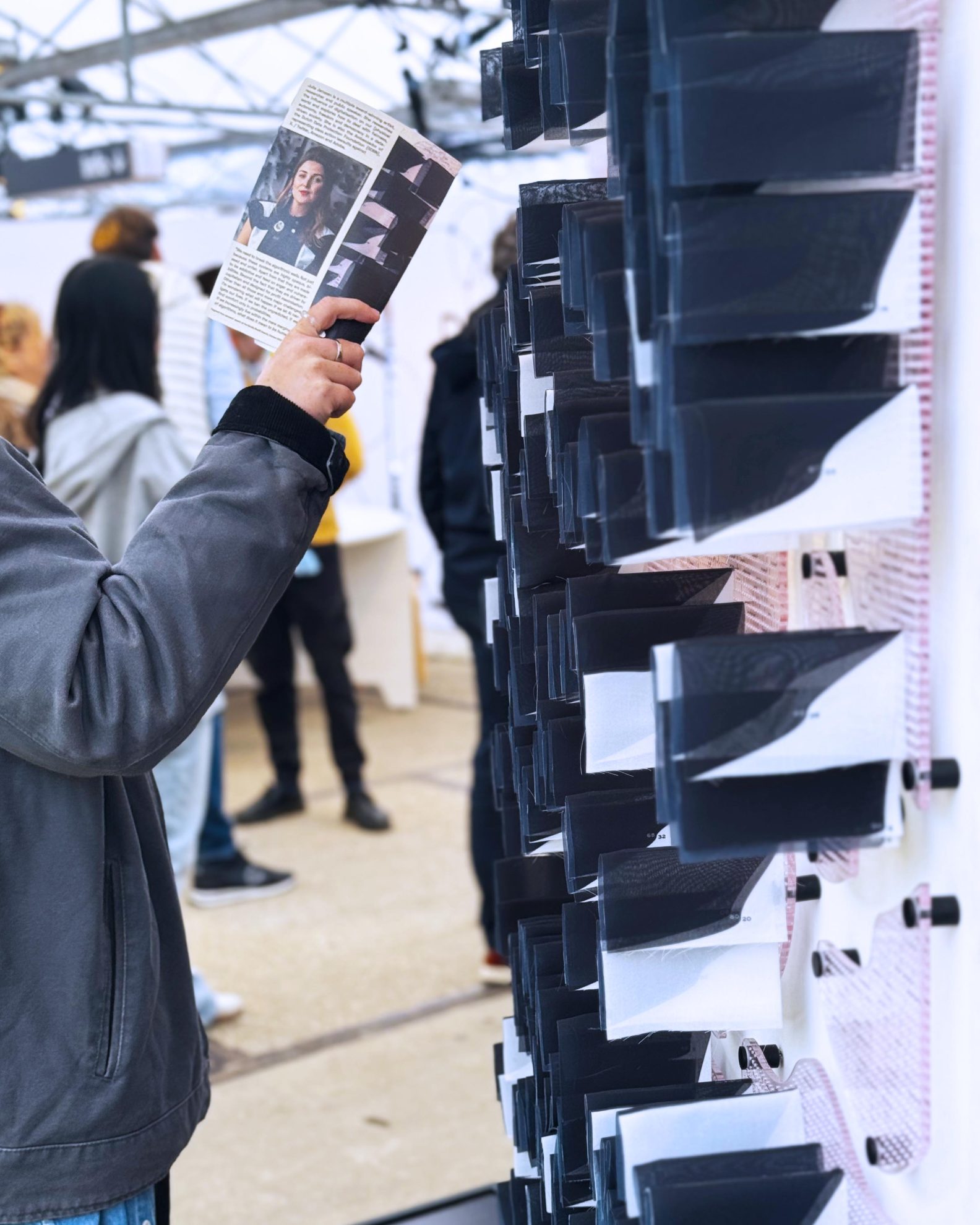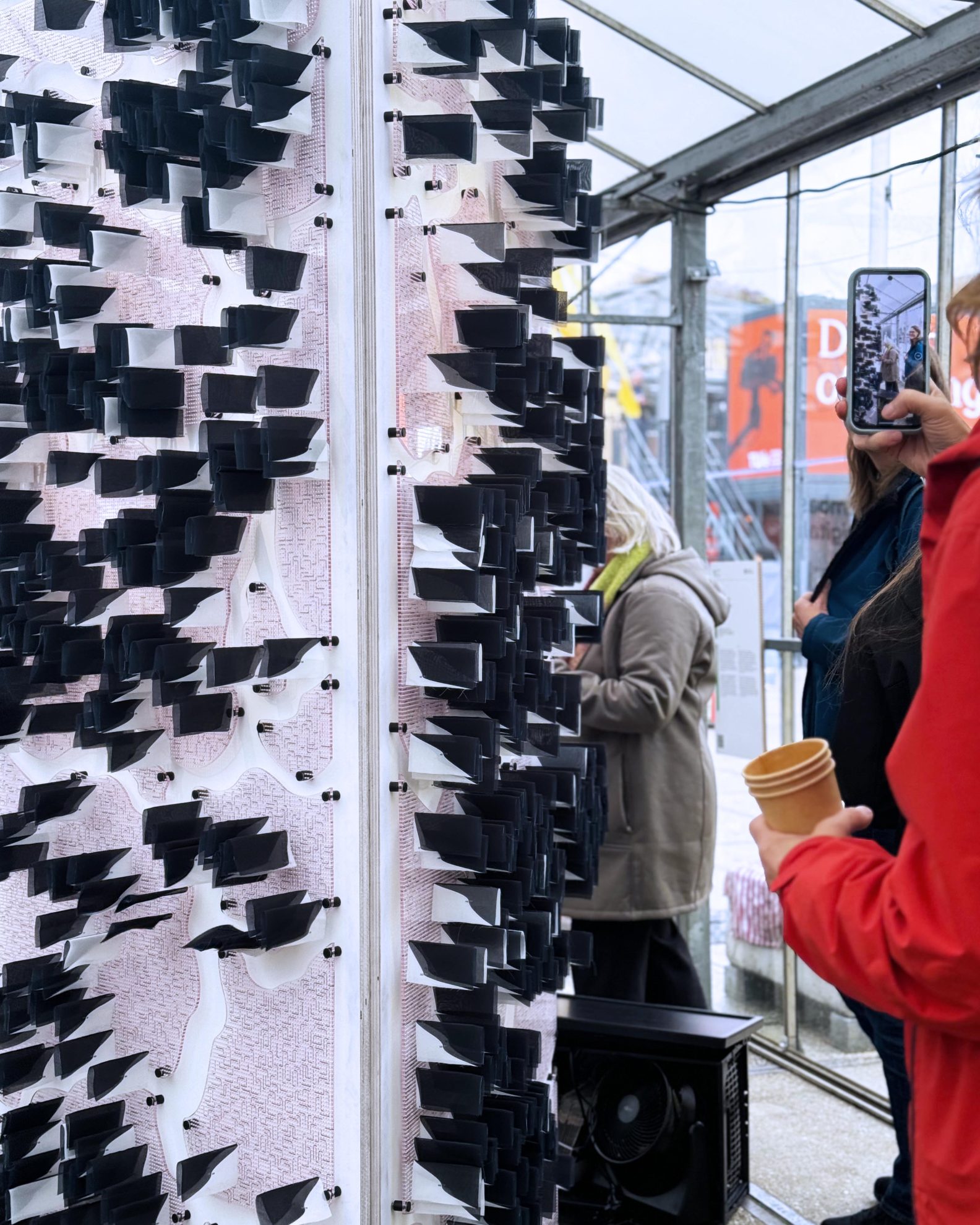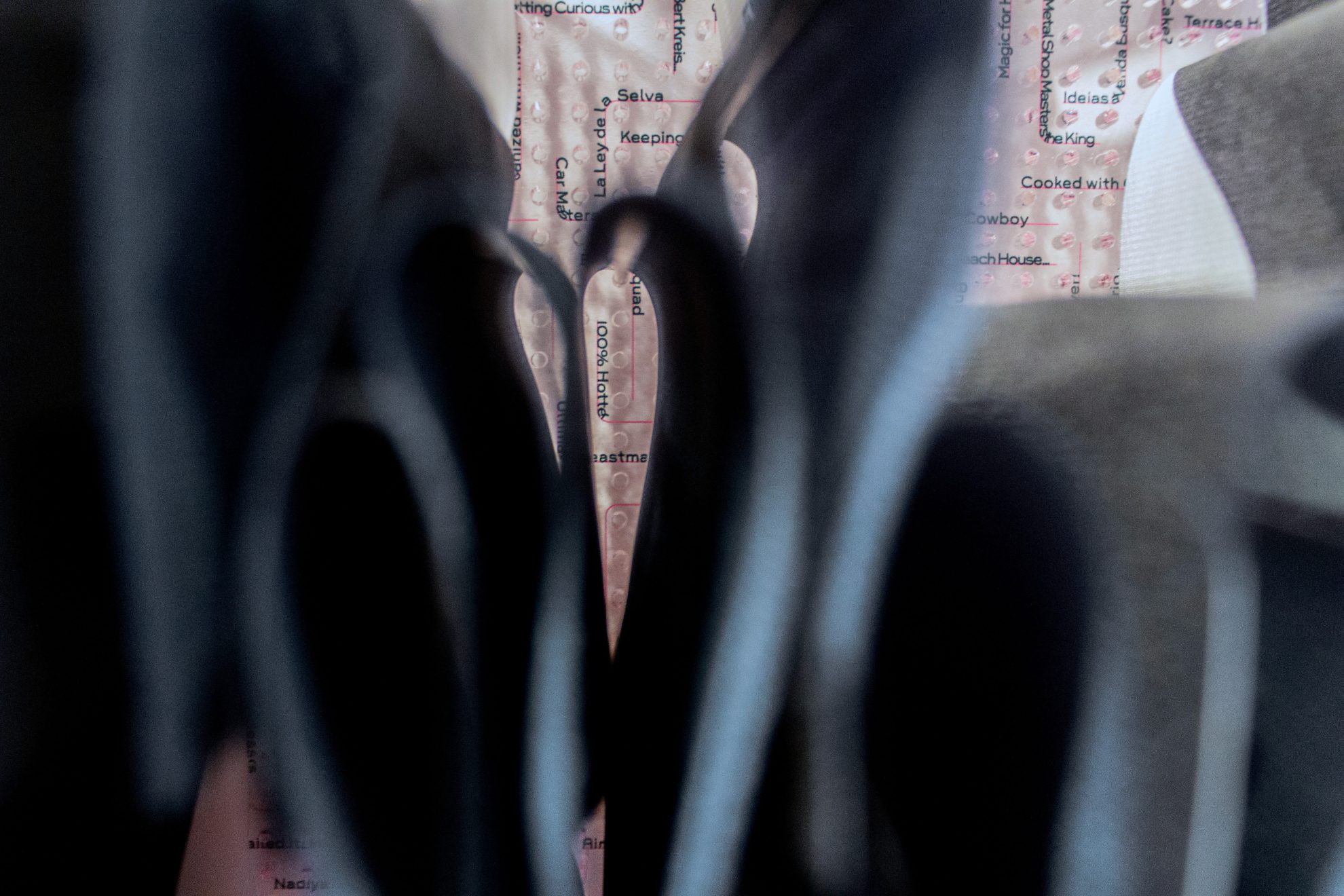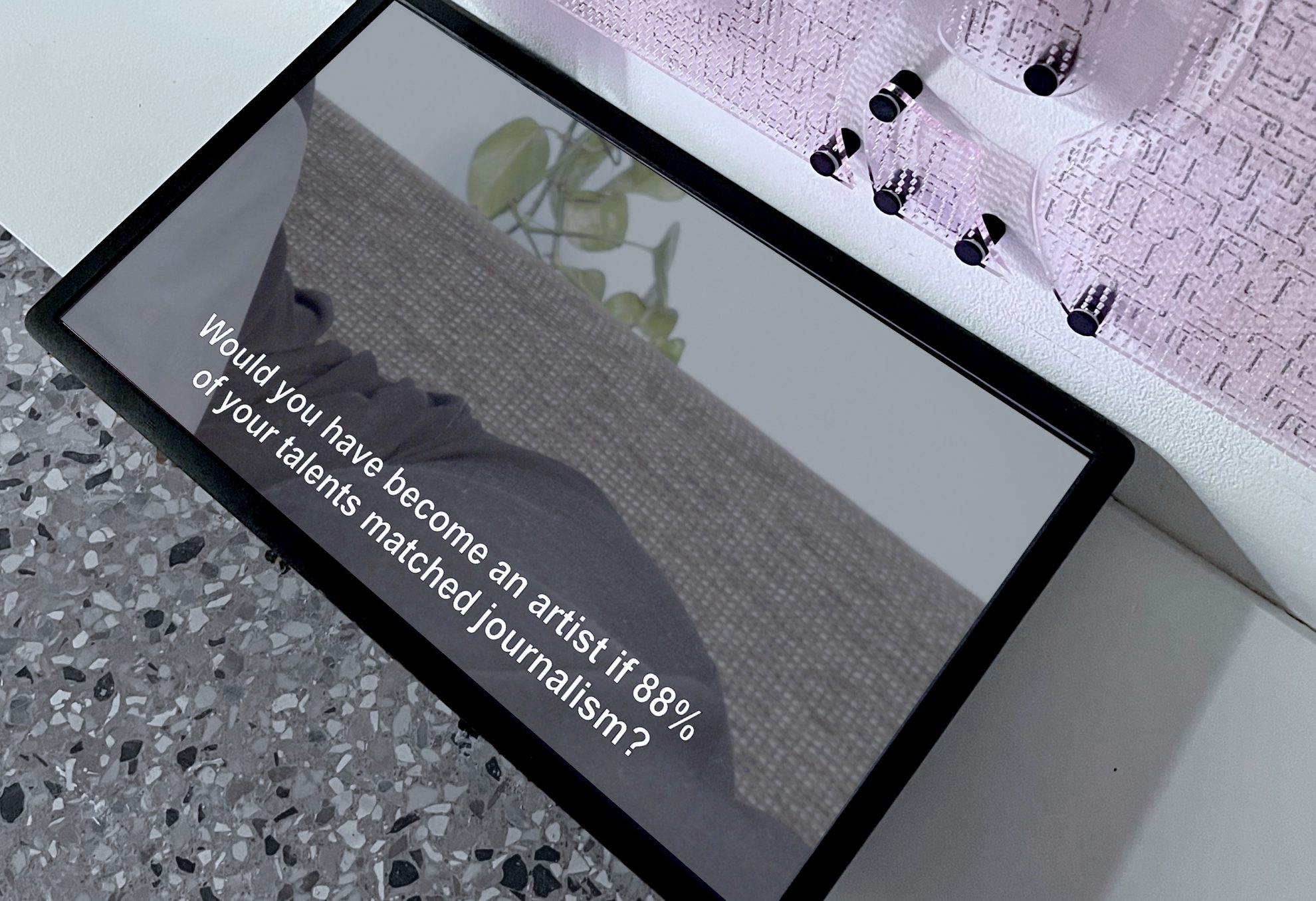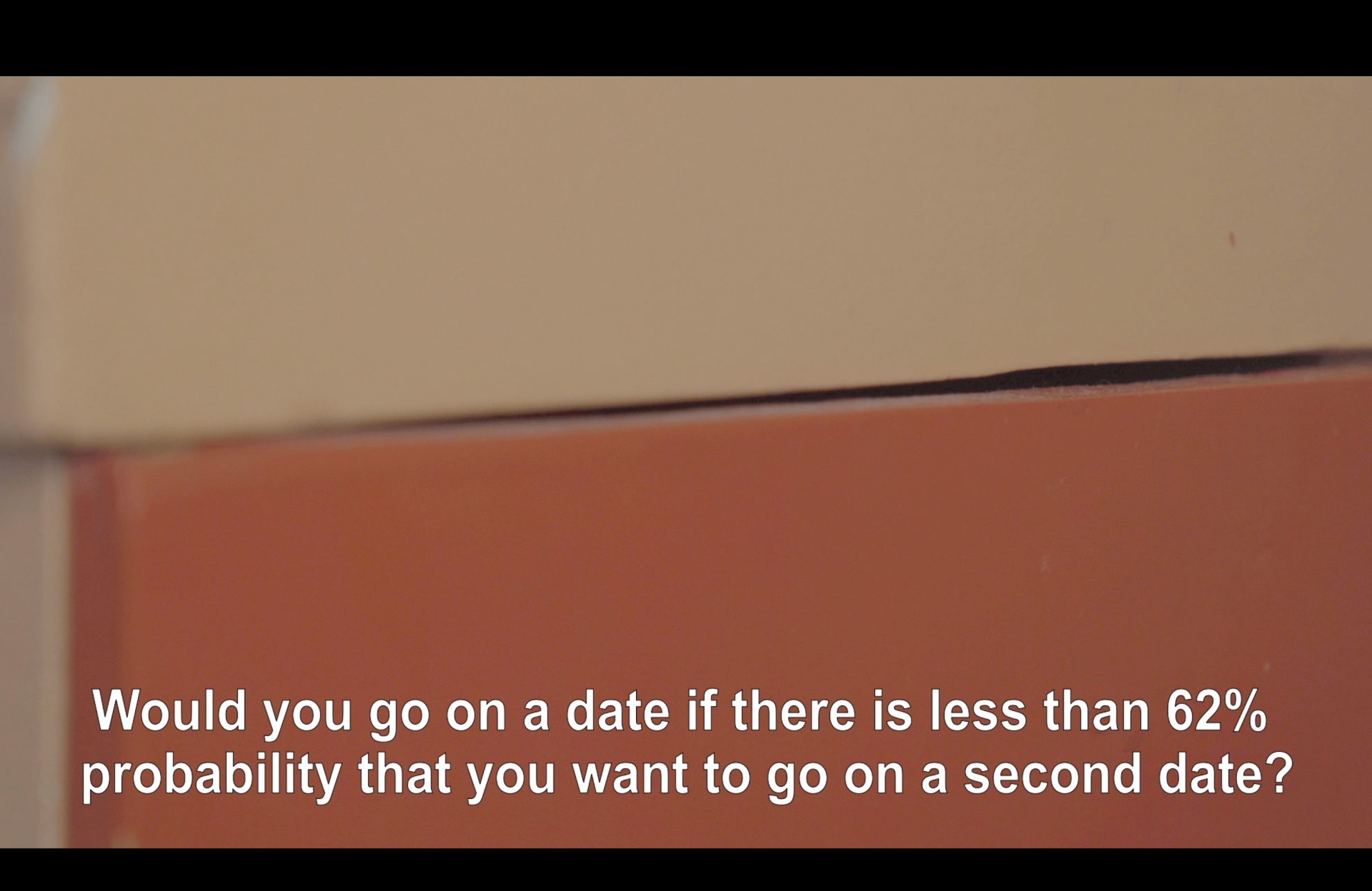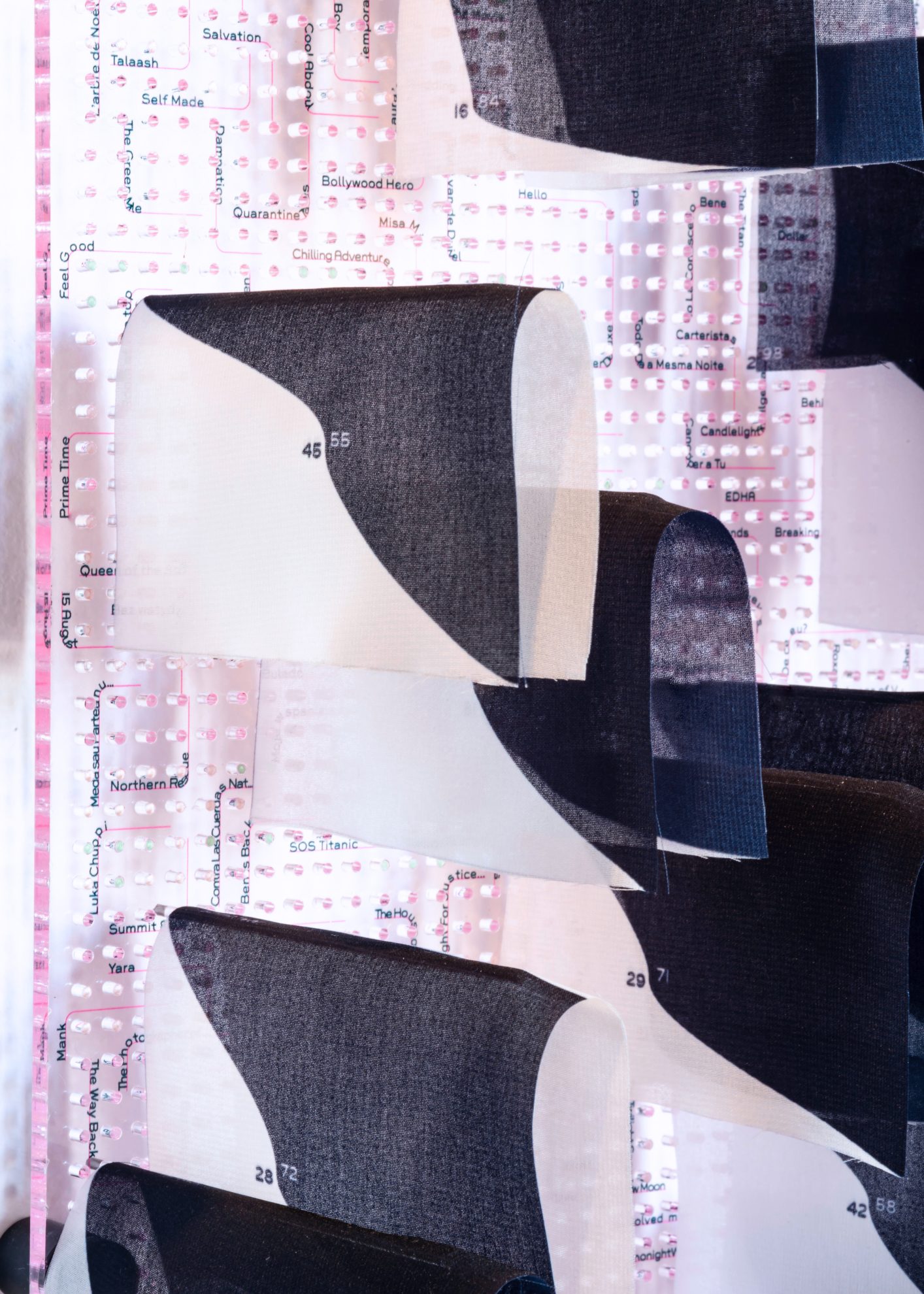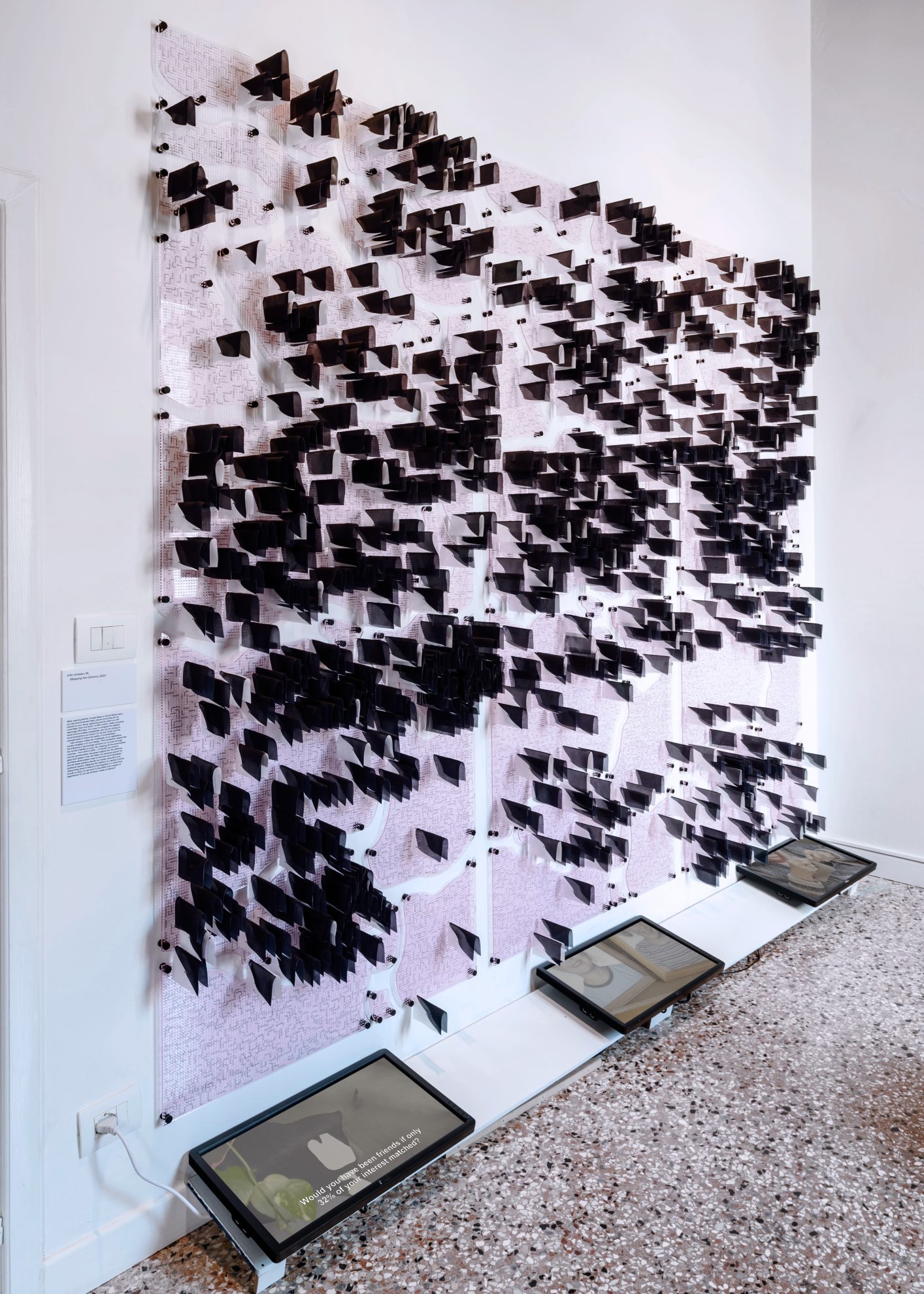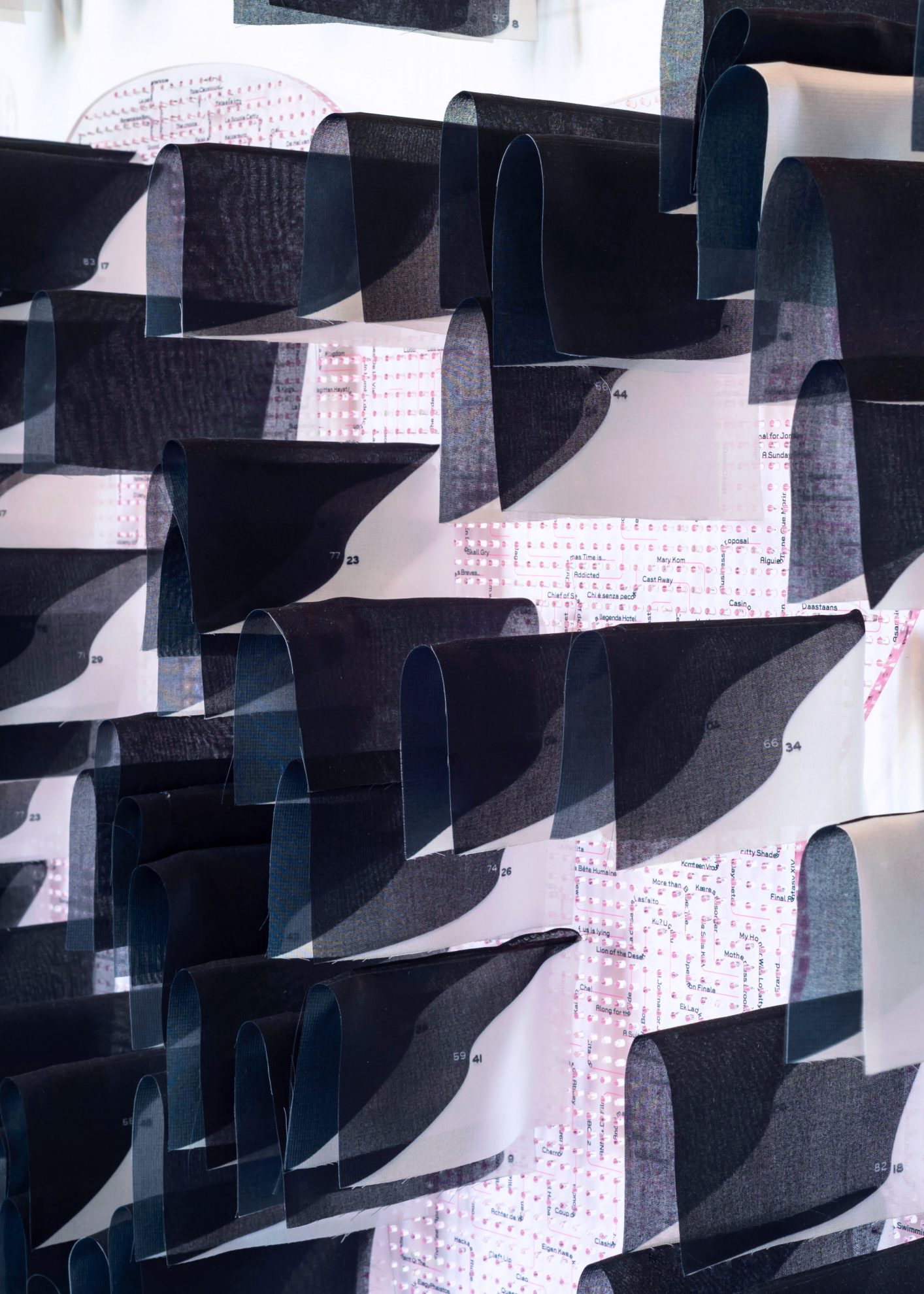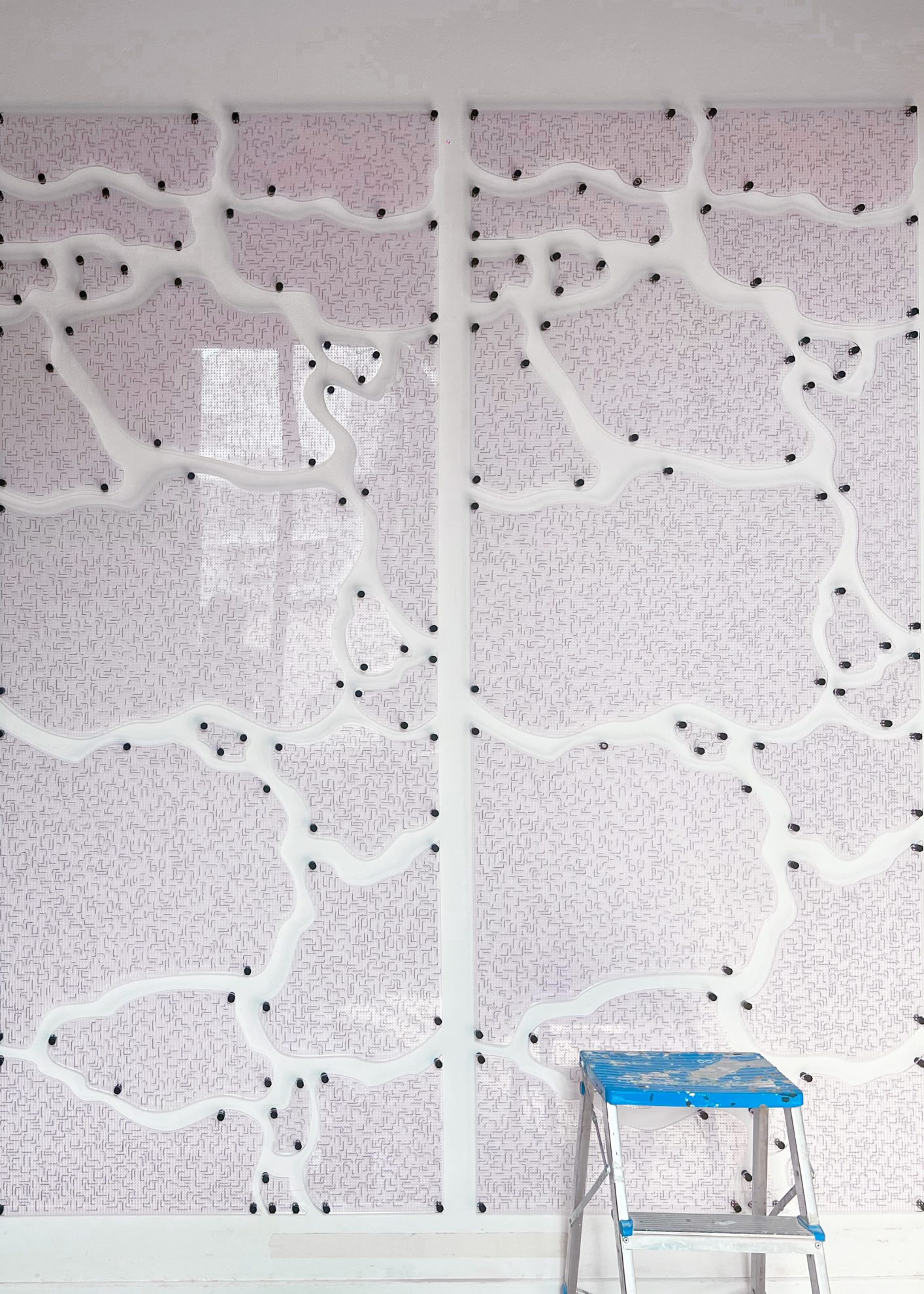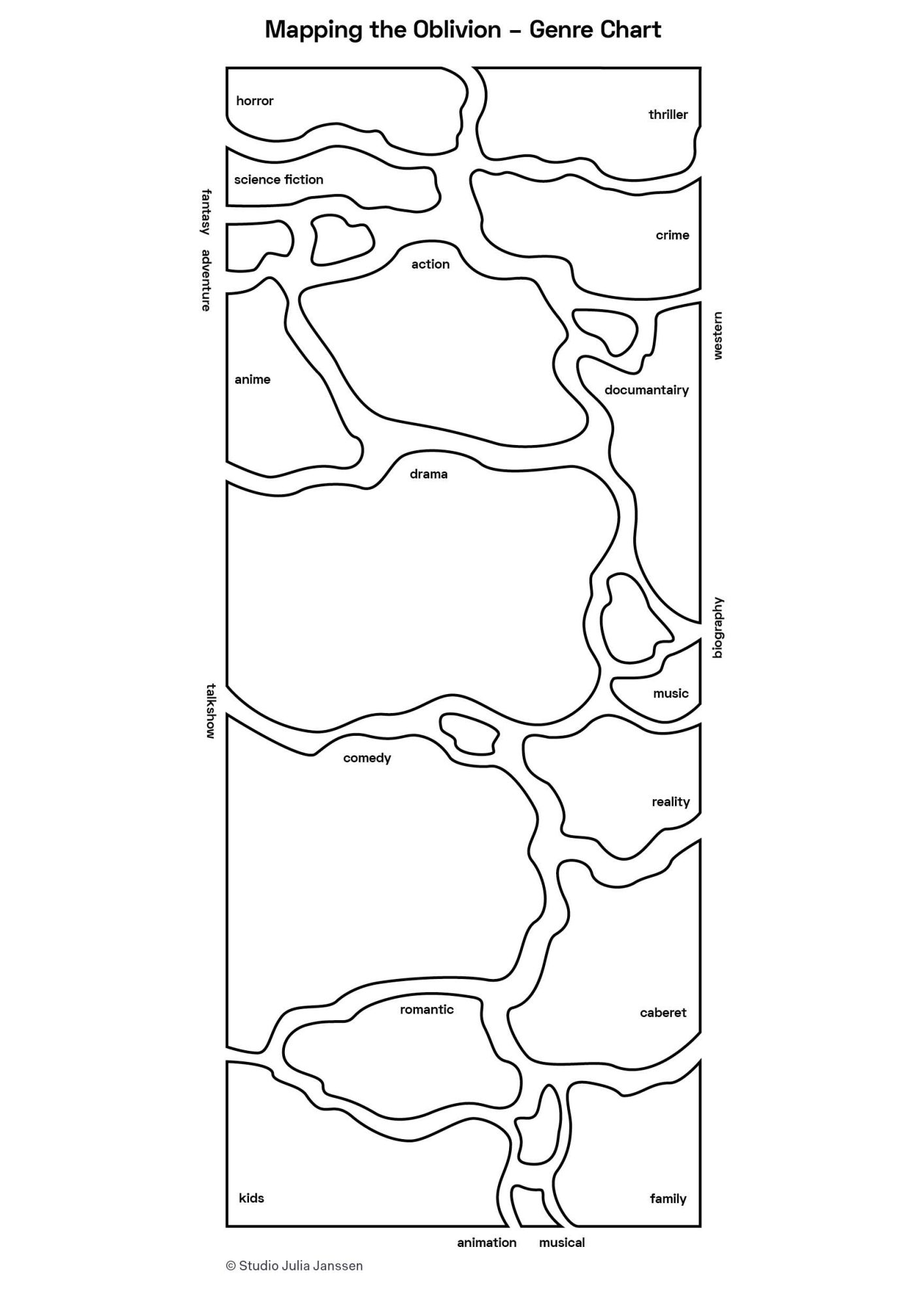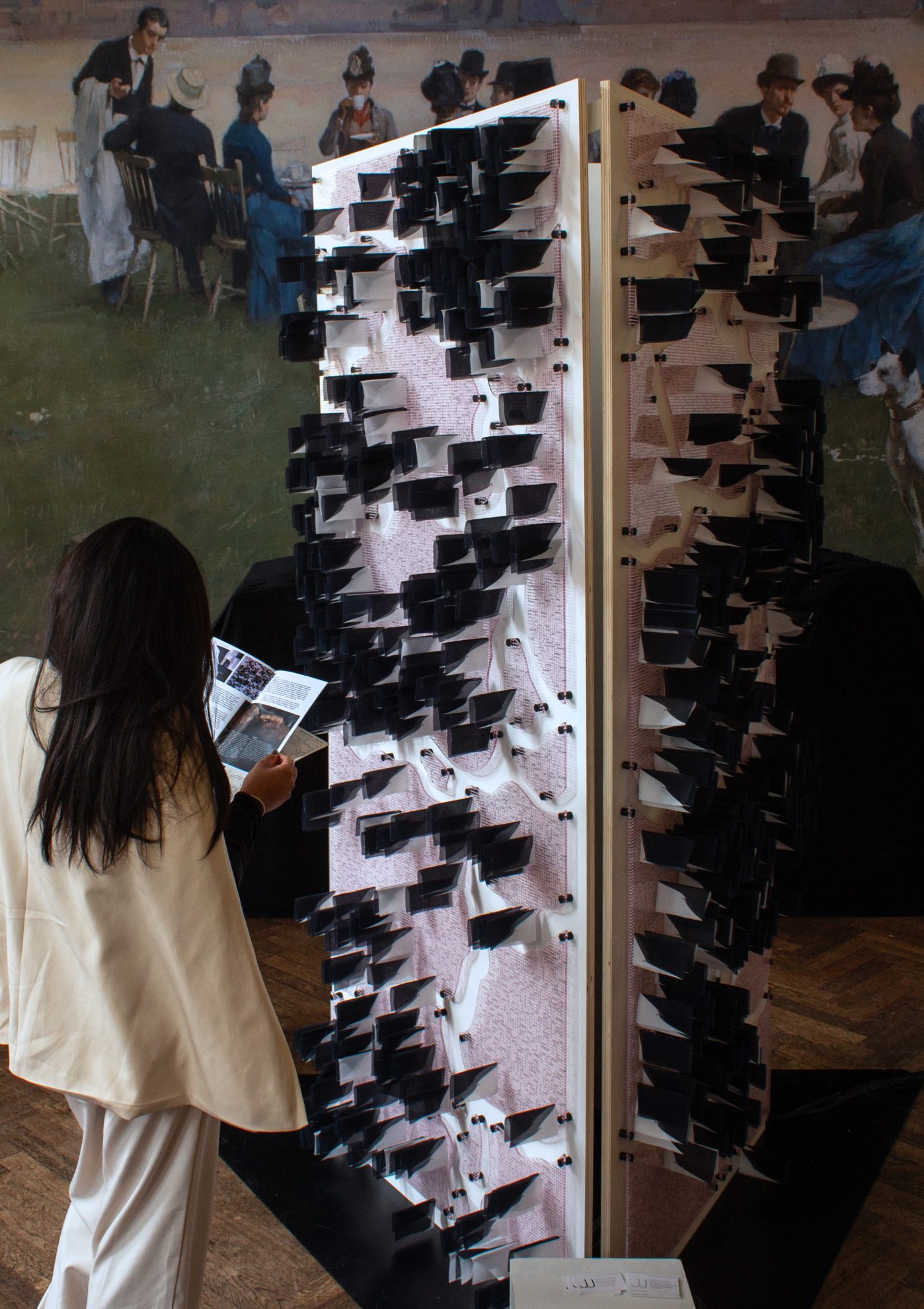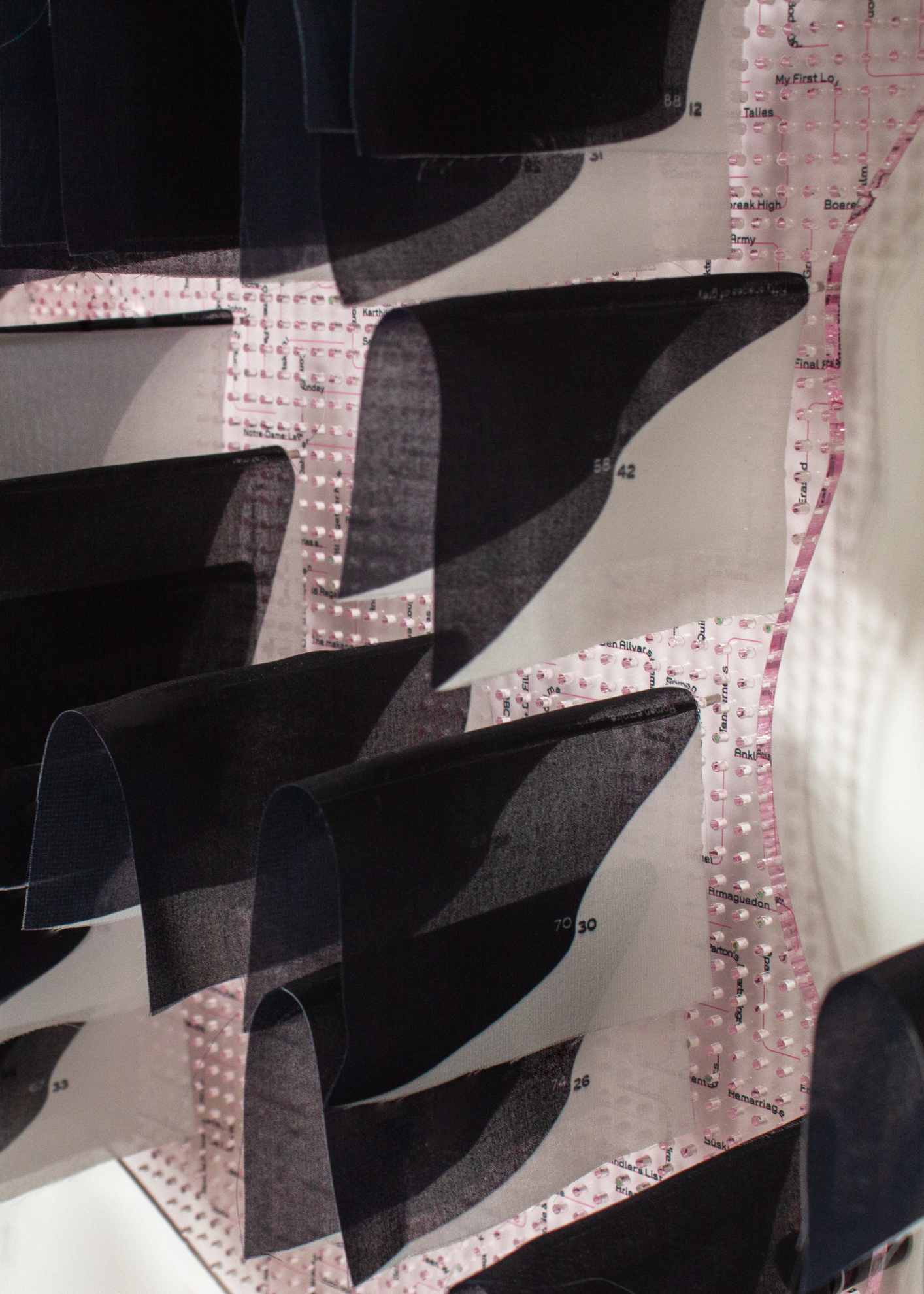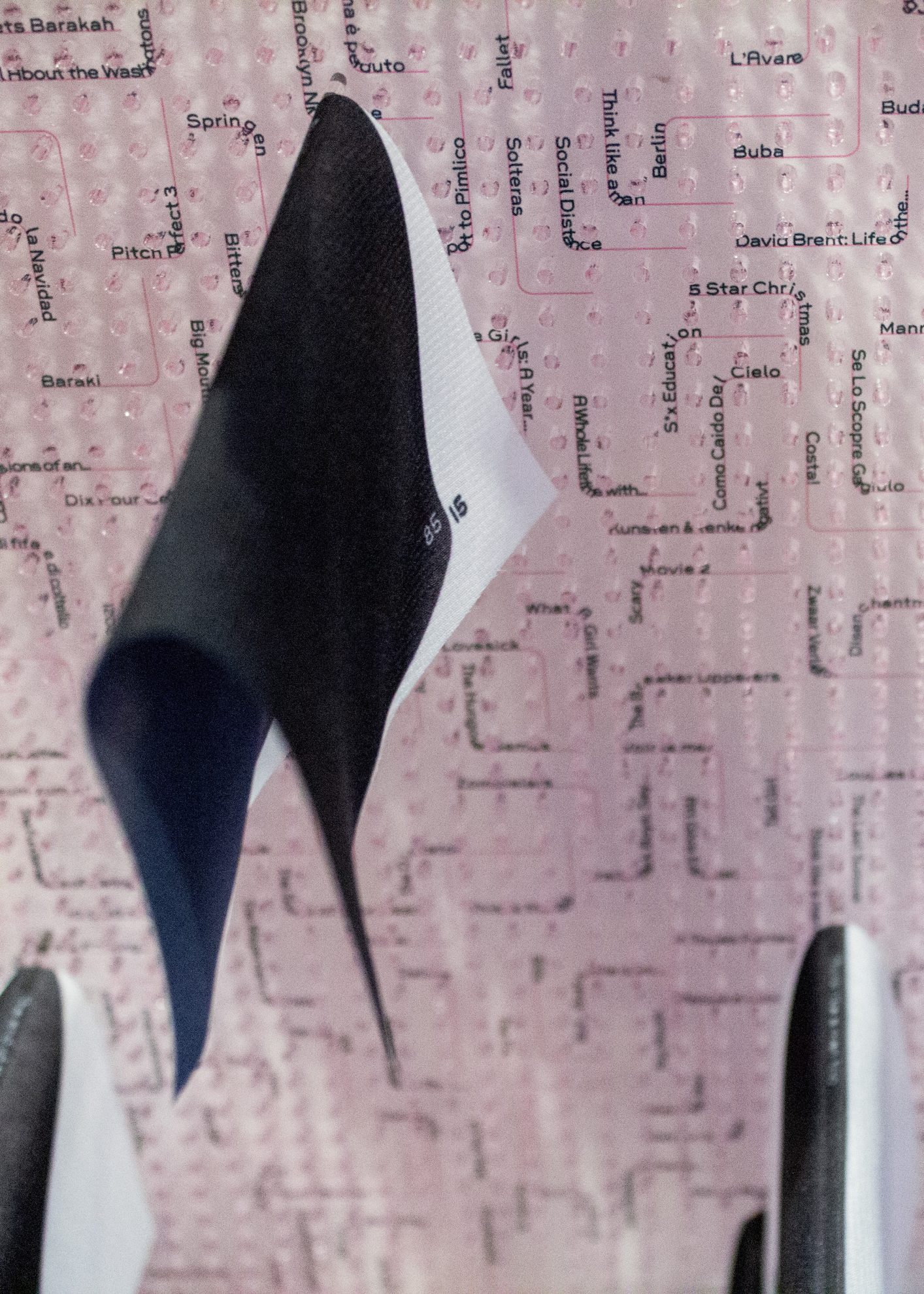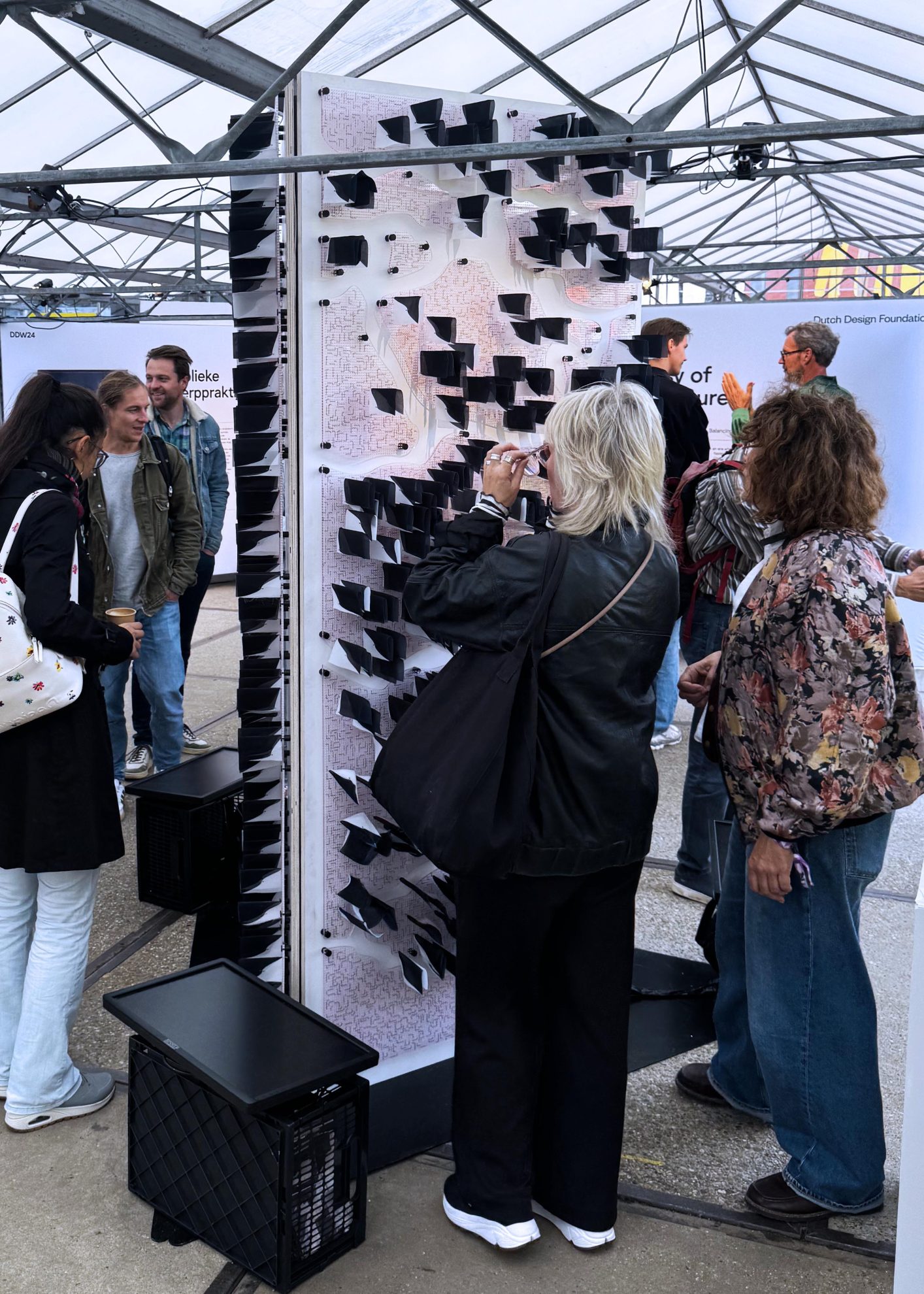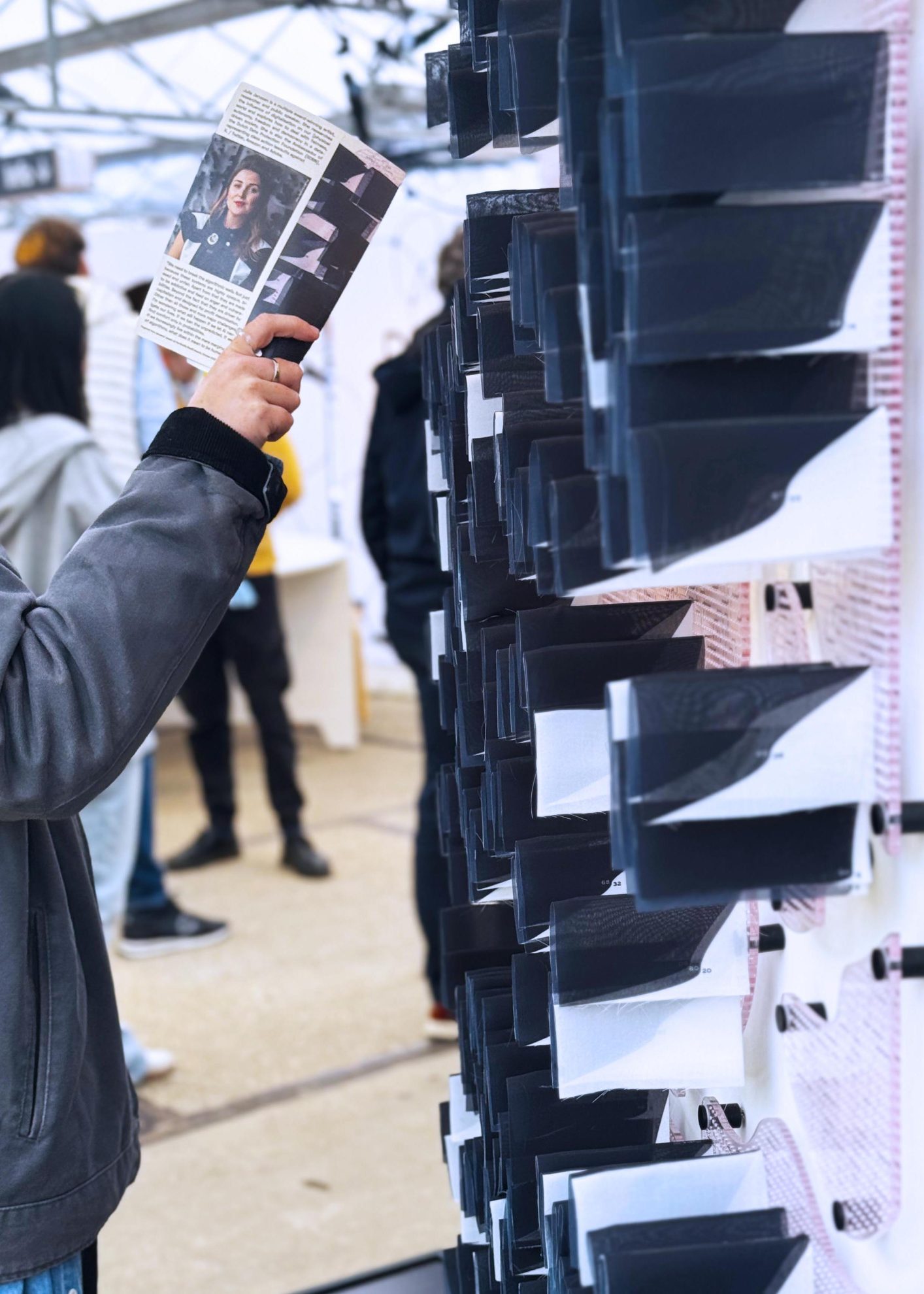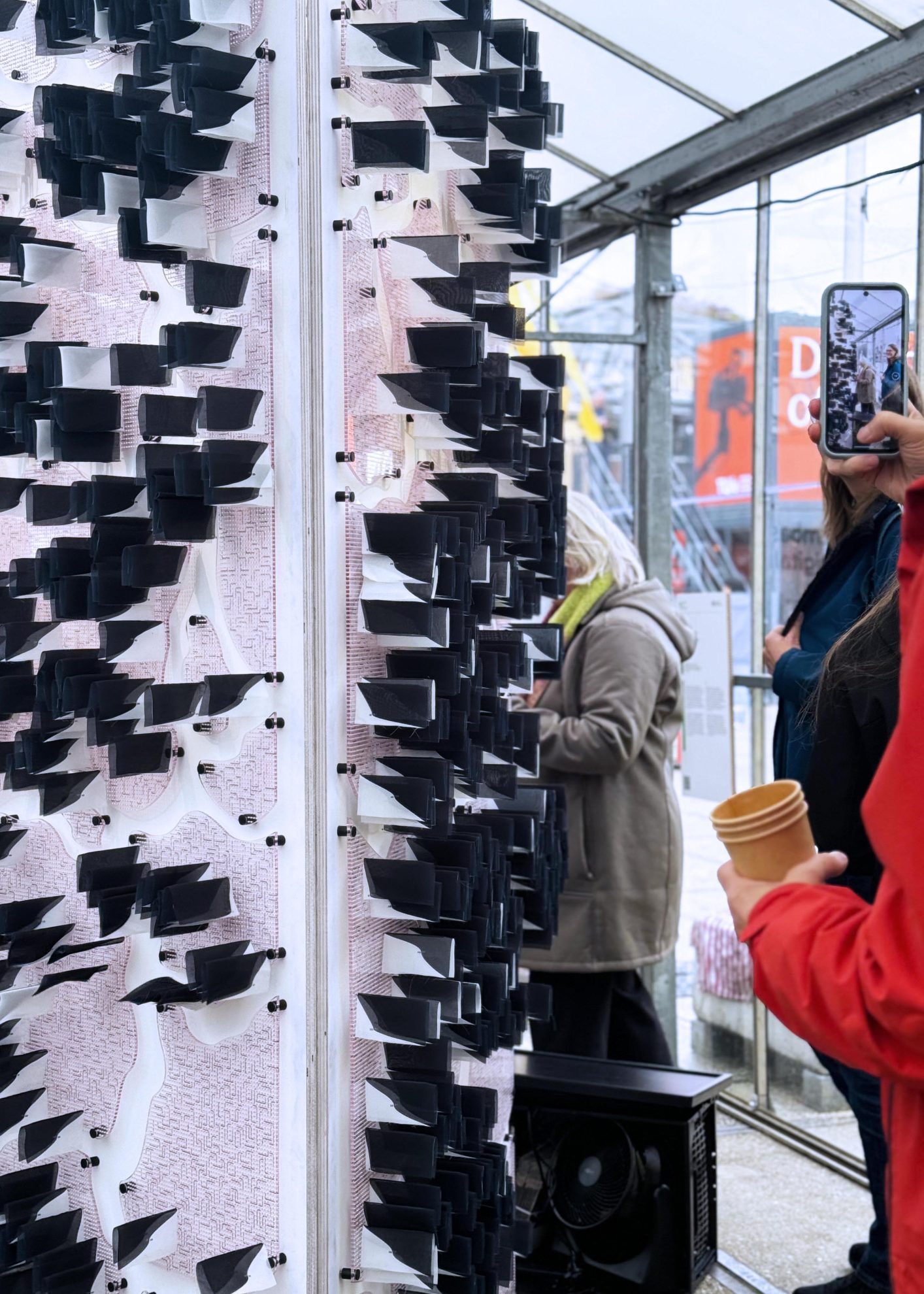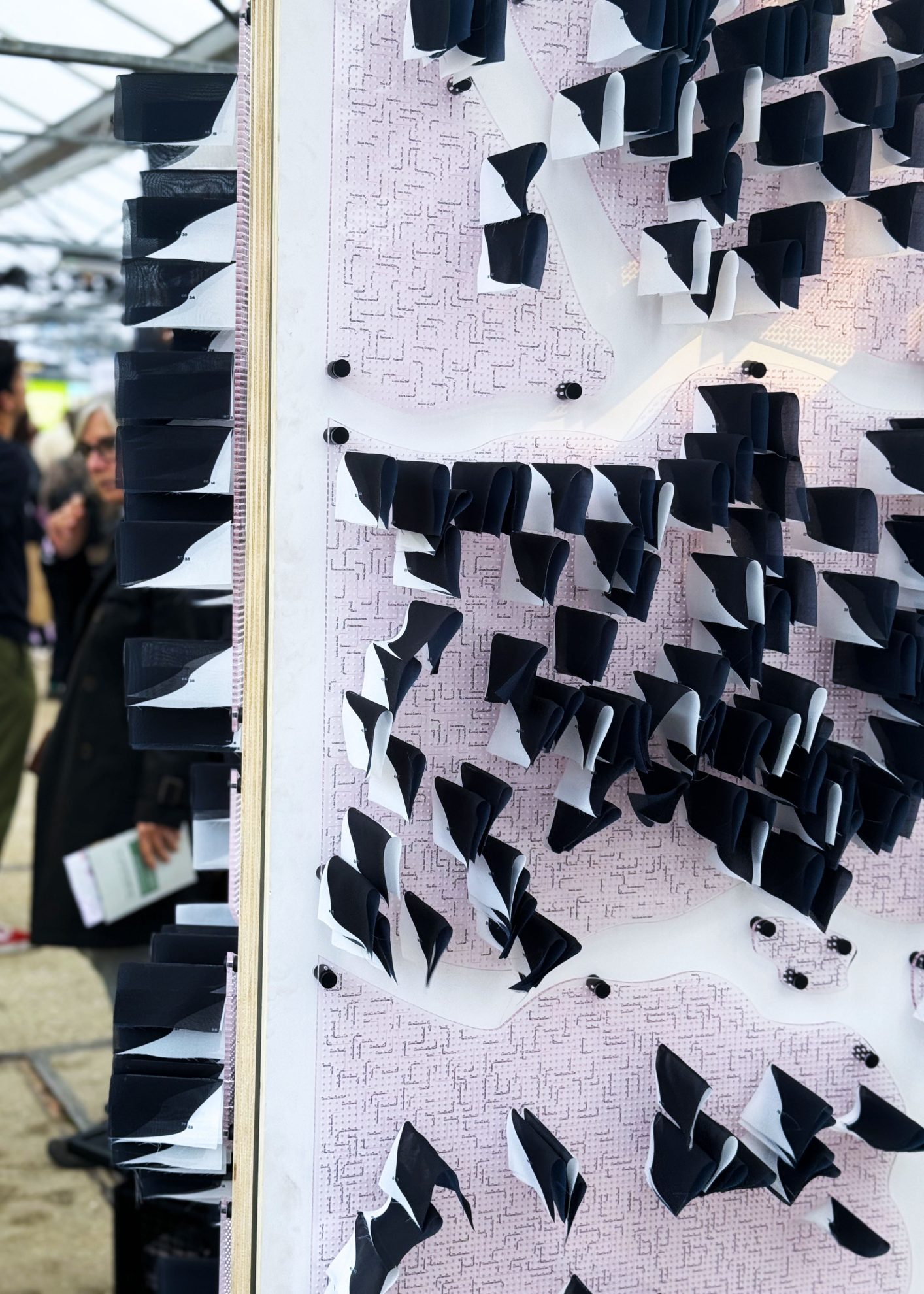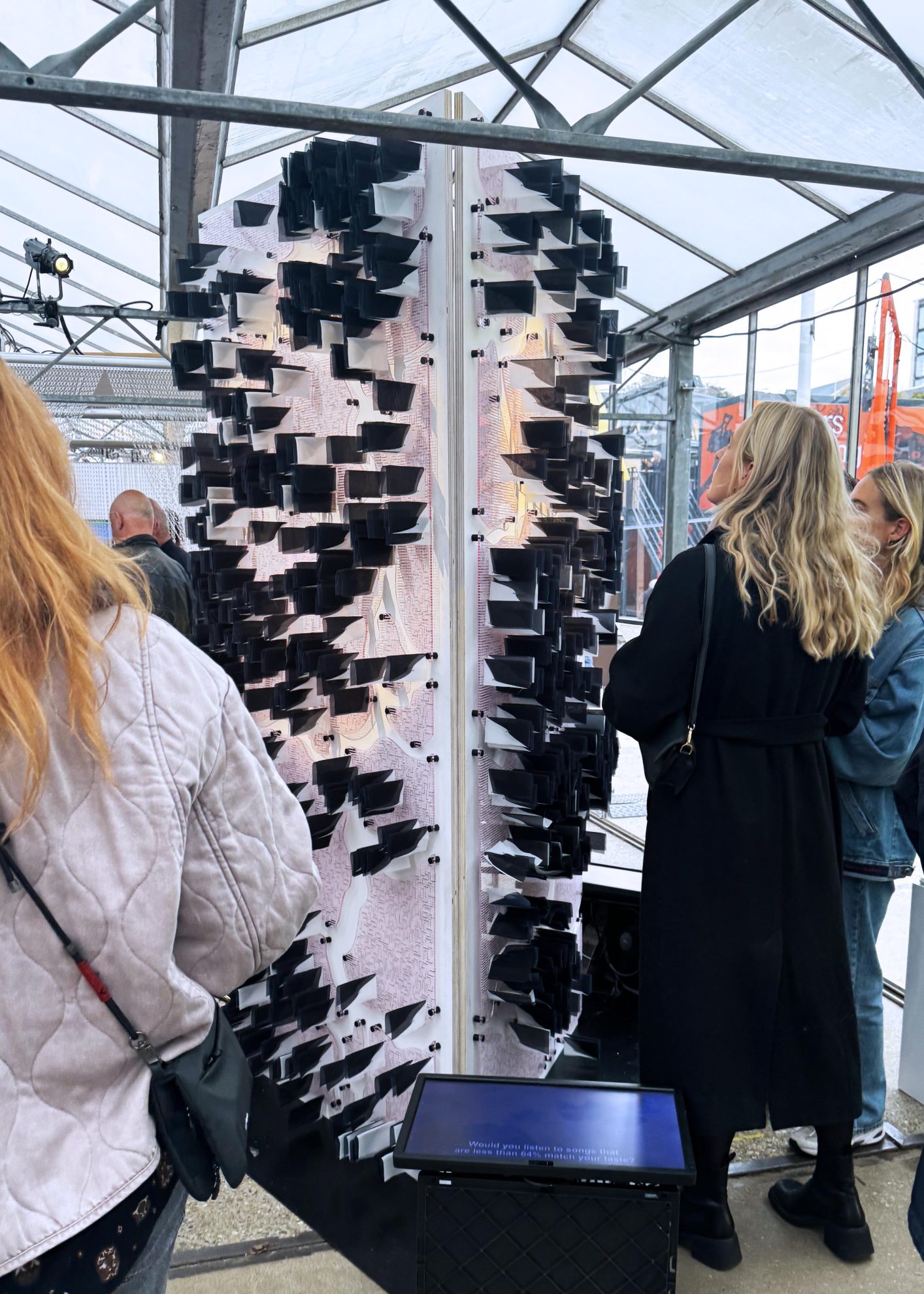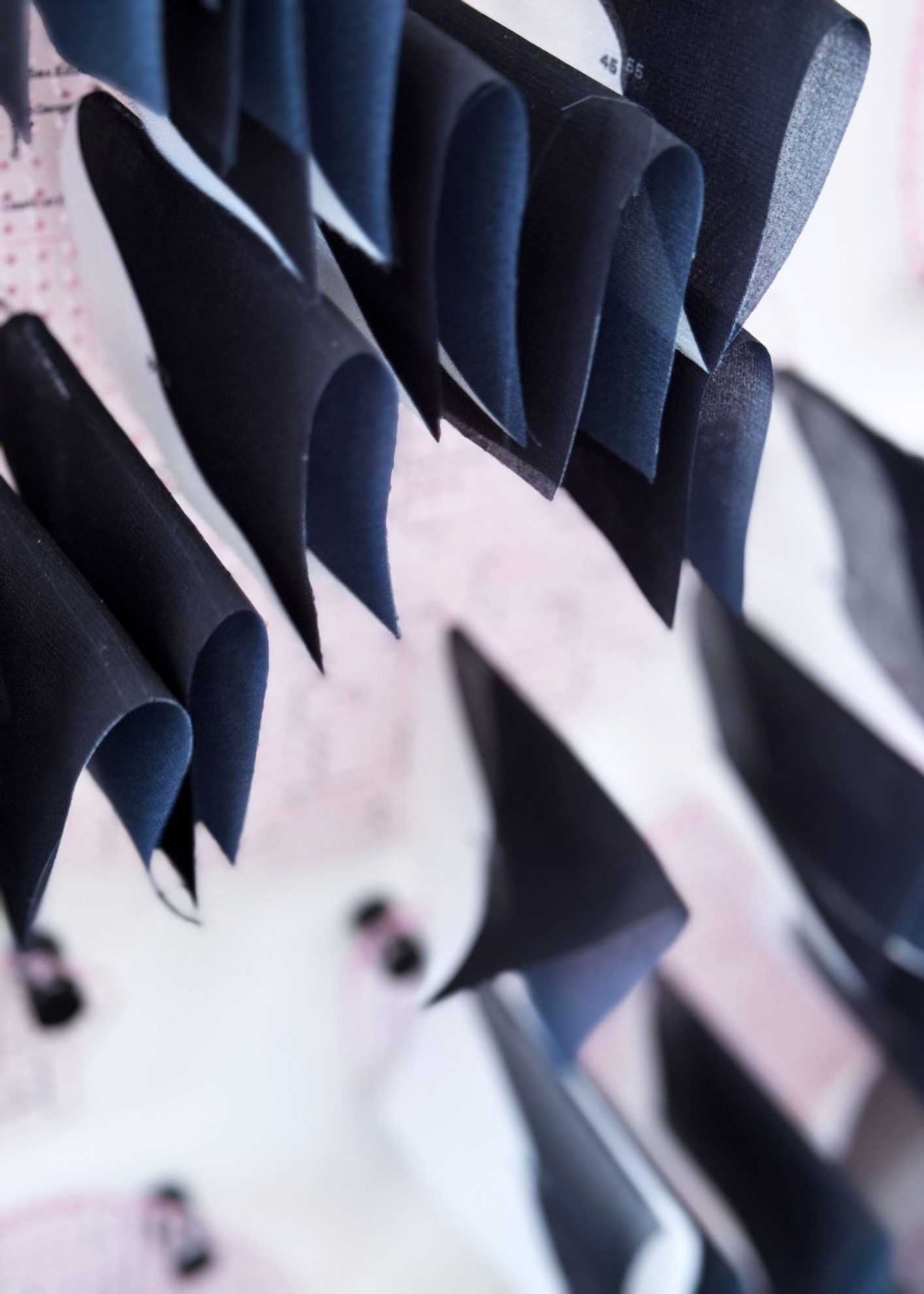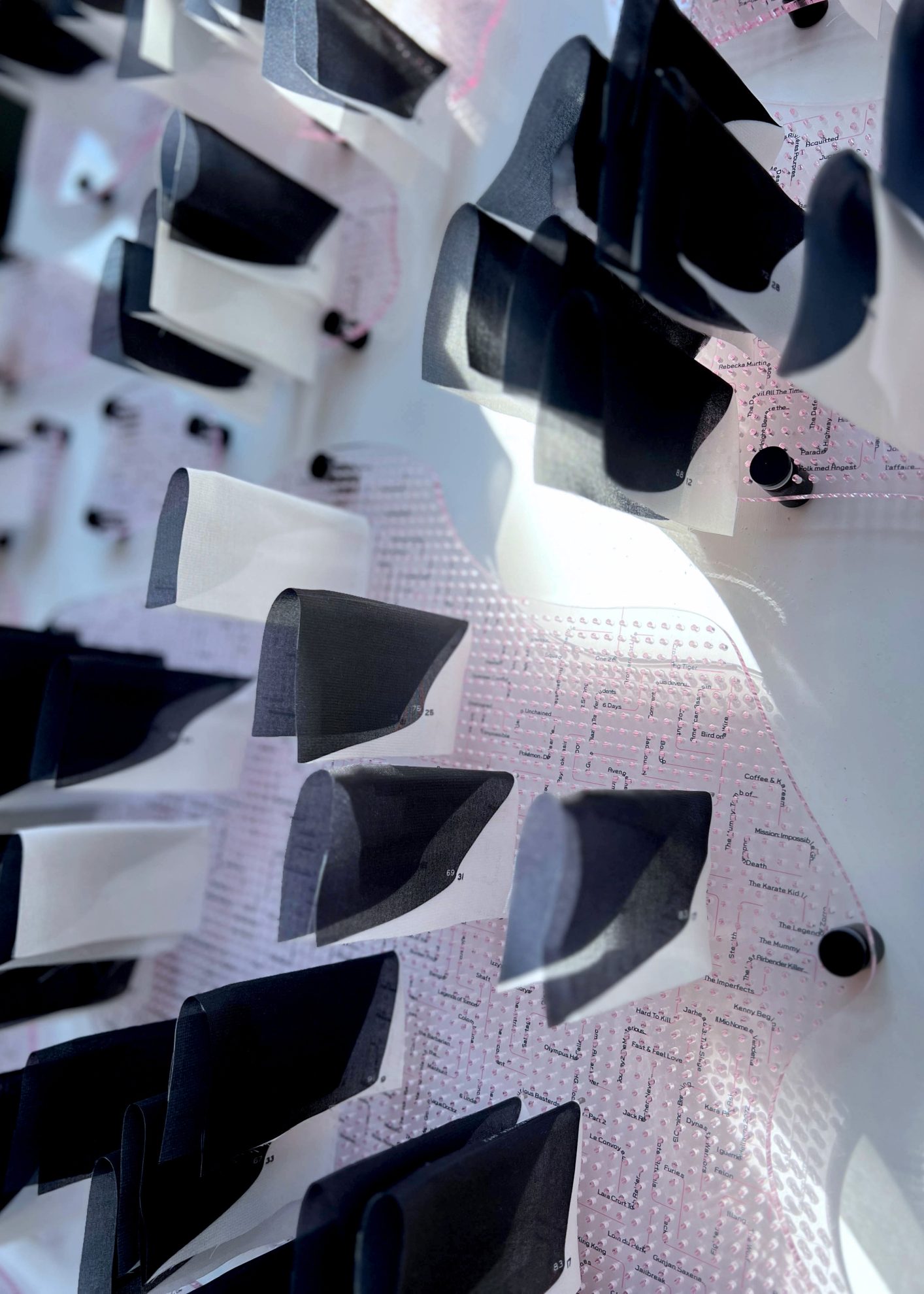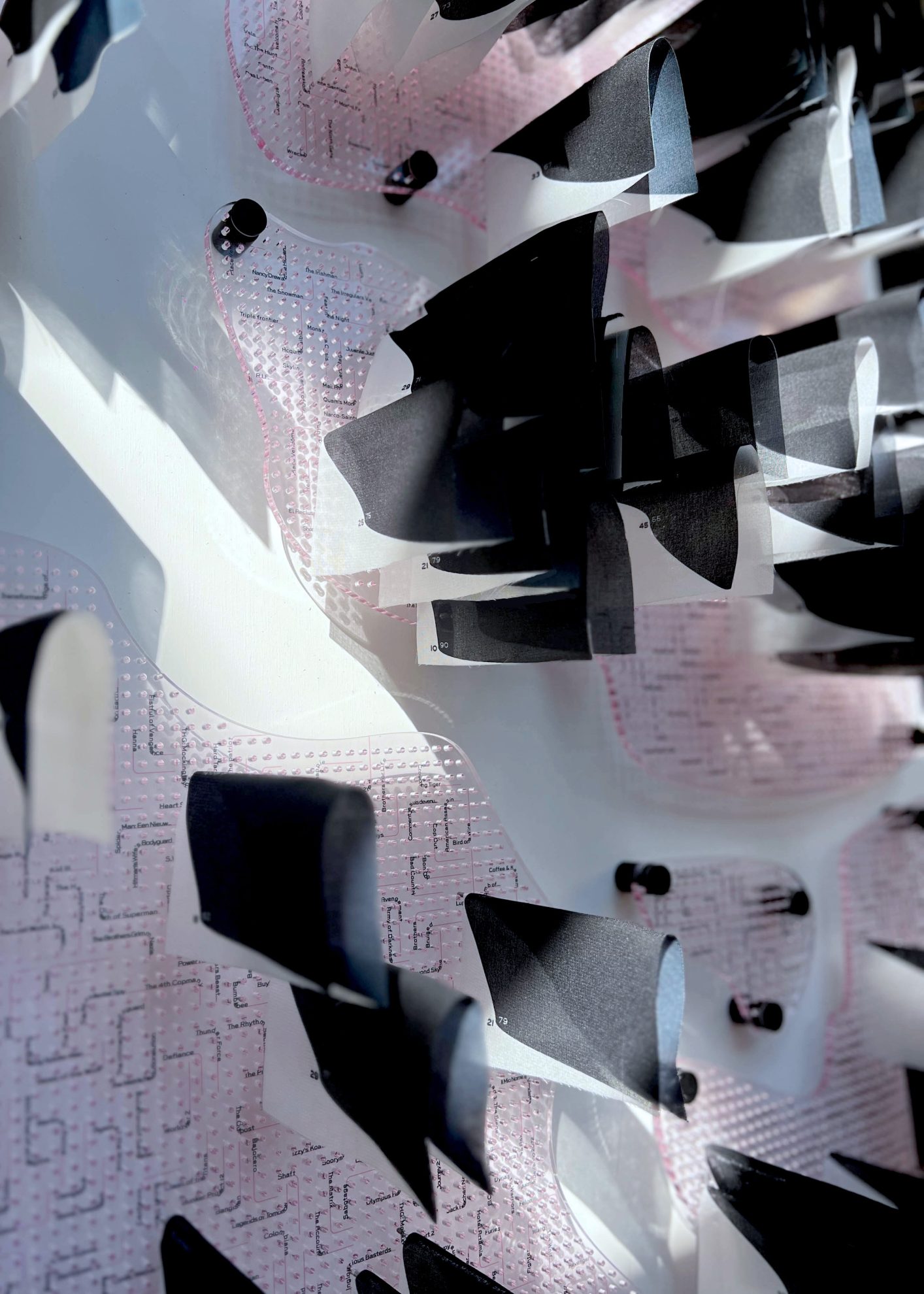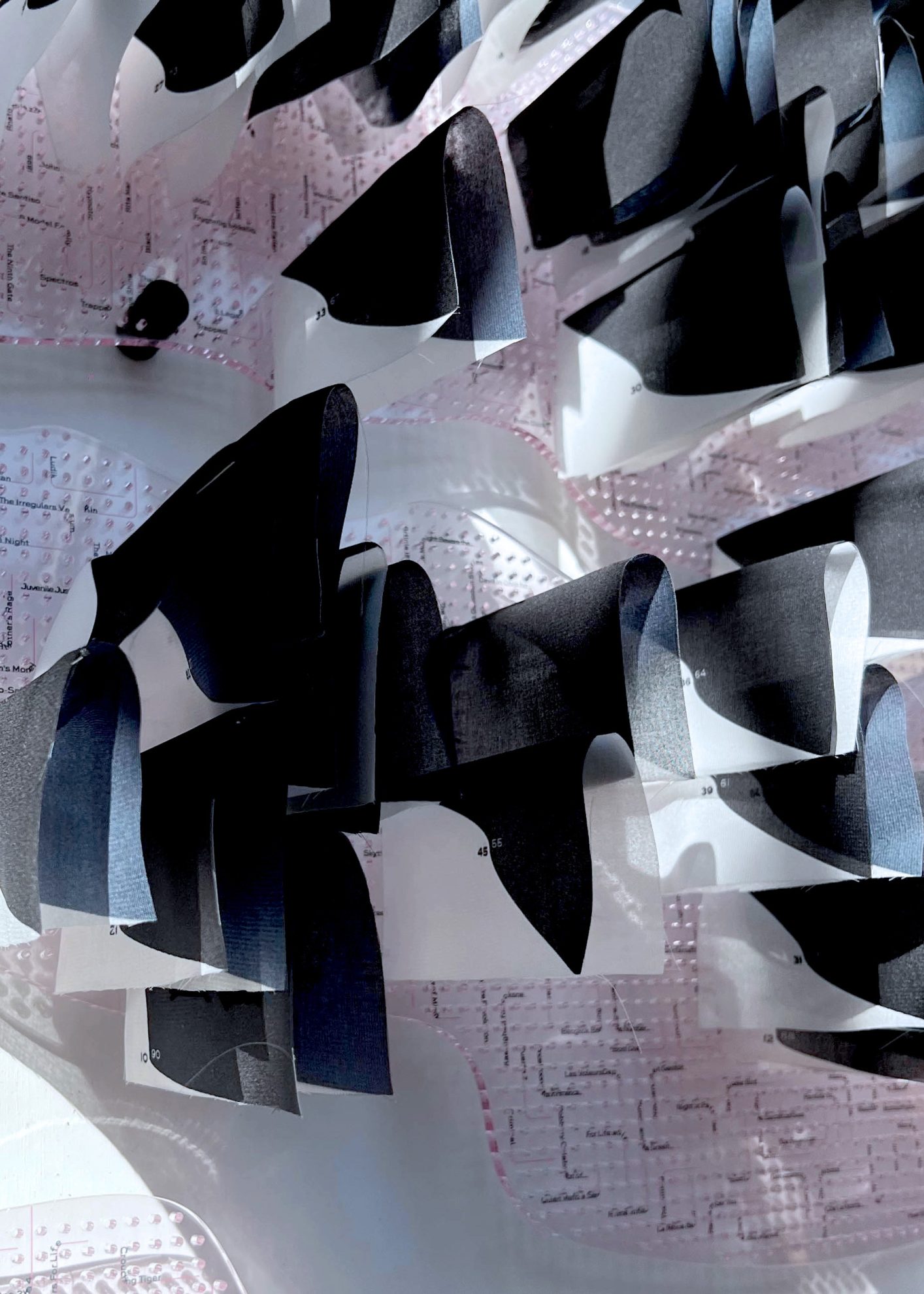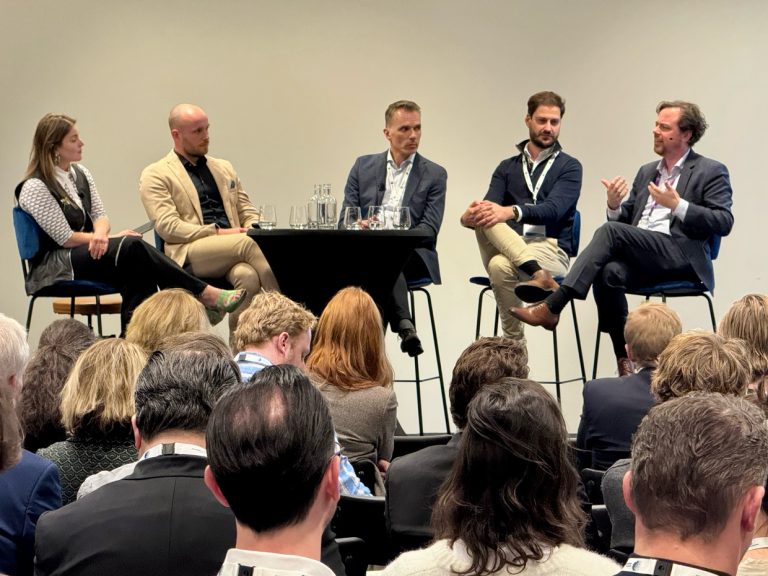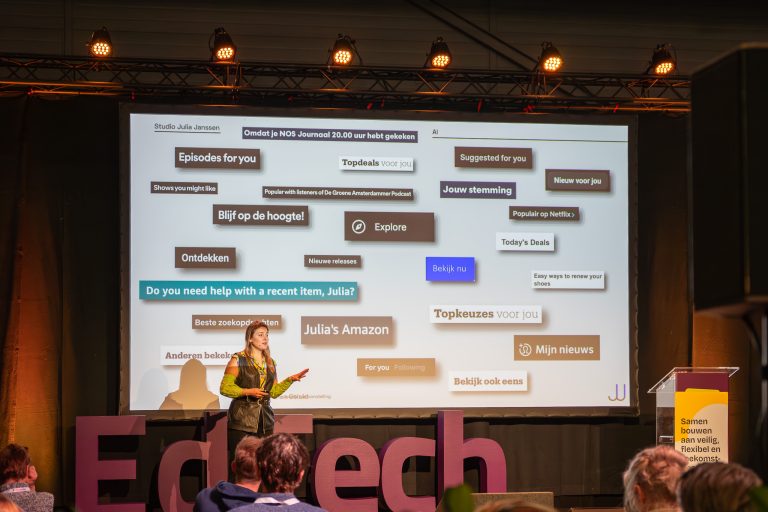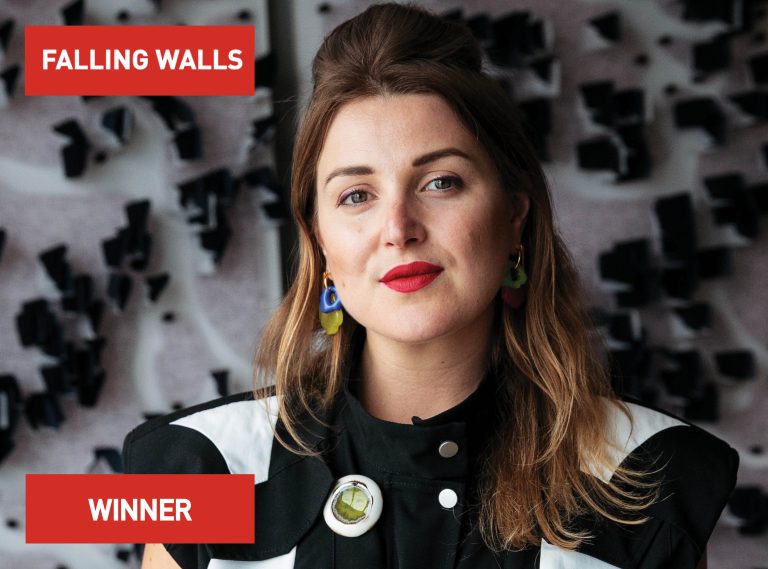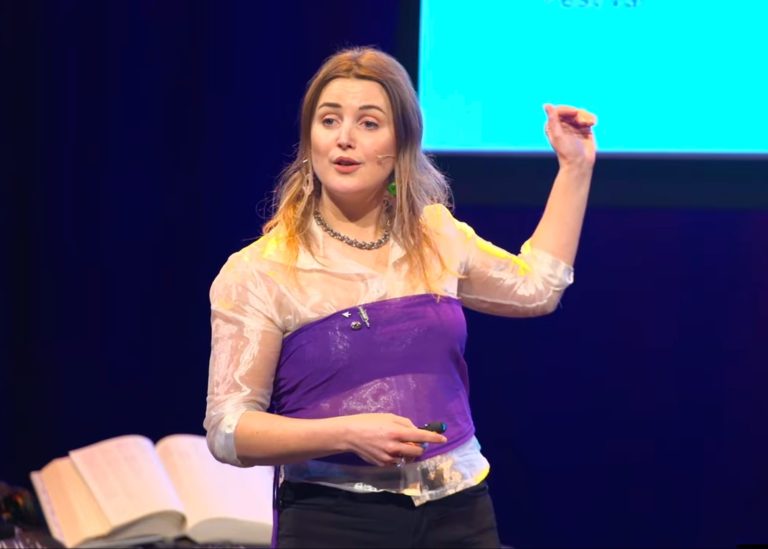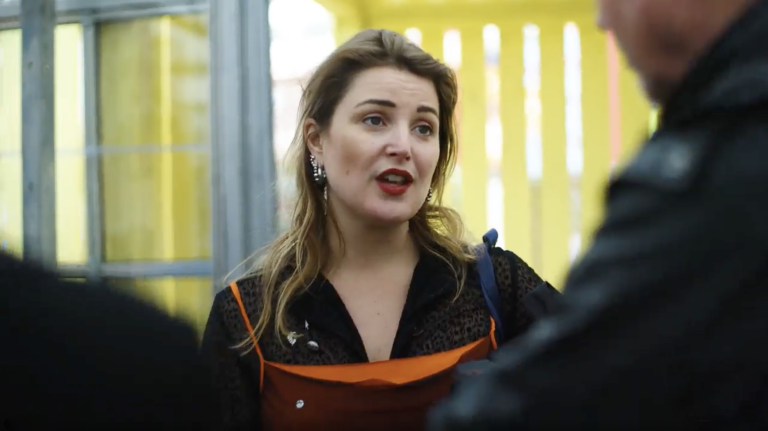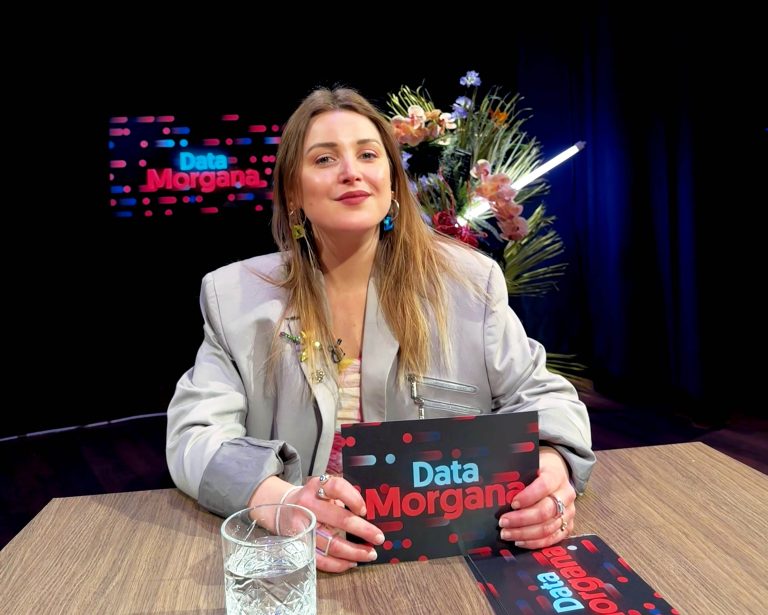Mapping the Oblivion
2023
Mapping the Oblivion researches the influence of data on human autonomy and the right to be forgotten in AI. “If we increasingly live within the mere margins of algorithms, what does it mean to be human?”
Algorithms increasingly shape your life. Telling what to buy, where to go, what news to believe or songs to listen to. Data helps to navigate the world’s complexity and its endless possibilities. Artificial intelligence promises frictionless experiences: tailored, targeted, and optimized to serve you best. But, at what cost? Frictionlessness comes with obedience. To the machine, the market and your own prophesy.
Mapping the Oblivion researches the influence of data on human autonomy and the right to be forgotten in AI. The installation shows the impact of recommendation models on our lives through the lens of Janssens family’s Netflix account. Janssen visualised her own, her dads and grandmothers streaming algortim to provoke questions about to what extent we want to quantify choices. “Will you only watch movies that are over 64% to your liking? Dine at restaurants that match your appetite above 76%. Date people whose compatibility is 89% or higher? Not pursue the career you want because it has a 12% chance at success? Do you want to outsmart your intuition with systems you do not understand and follow the map of probabilities and statistics?
Each frame consists of a grid with the 7000 titles available on Netflix. The flags show the three different streaming algorithms: Julia, her dad and her Grandmother. Daily, about 350 titles are ranked between 55% and 99% chance they will like it at that time. Meaning, that we only see about 5% The rest becomes oblivion. It might seem harmless for Netflix, but these methodologies are used widely and influence our social media timelines, search results, and how we consume news and information. Are we becoming oblivious to what is outside the algorithm?
Debut Venice Architecture Biennial
Exhibitions Public Spaces, Mozilla Mozfest, Dutch Design Week
2023
Debut
Venice Architecture Biennale
Exhibitions
Public Spaces
Mozilla Mozfest
Dutch Design Week
Mapping the Oblivion researches the influence of data on human autonomy and the right to be forgotten in AI. “If we increasingly live within the mere margins of algorithms, what does it mean to be human?”
Algorithms increasingly shape your life. Telling what to buy, where to go, what news to believe or songs to listen to. Data helps to navigate the world’s complexity and its endless possibilities. Artificial intelligence promises frictionless experiences: tailored, targeted, and optimized to serve you best. But, at what cost? Frictionlessness comes with obedience. To the machine, the market and your own prophesy.
Mapping the Oblivion researches the influence of data on human autonomy and the right to be forgotten in AI. The installation shows the impact of recommendation models on our lives through the lens of Janssens family’s Netflix account. Janssen visualised her own, her dads and grandmothers streaming algortim to provoke questions about to what extent we want to quantify choices. “Will you only watch movies that are over 64% to your liking? Dine at restaurants that match your appetite above 76%. Date people whose compatibility is 89% or higher? Not pursue the career you want because it has a 12% chance at success? Do you want to outsmart your intuition with systems you do not understand and follow the map of probabilities and statistics?
The right to be forgotten is an EU right to request to delete one’s data, can help us to take back control and alter our future. However, this right poses a multitude of challenges. As data rarely stays within one platform it becomes nearly impossible to know what companies have data on you. Moreover, it raises the question of what it means to be forgotten in a world built on data.
Each frame consists of a grid with the 7000 titles available on Netflix. The flags show the three different streaming algorithms: Julia, her dad and her Grandmother. Daily, about 350 titles are ranked between 55% and 99% chance they will like it at that time. Meaning, that we only see about 5% The rest becomes oblivion. It might seem harmless for Netflix, but these methodologies are used widely and influence our social media timelines, search results, and how we consume news and information. Are we becoming oblivious to what is outside the algorithm?
